

Sign up for 63Stravel VIP membership to enjoy special offers.
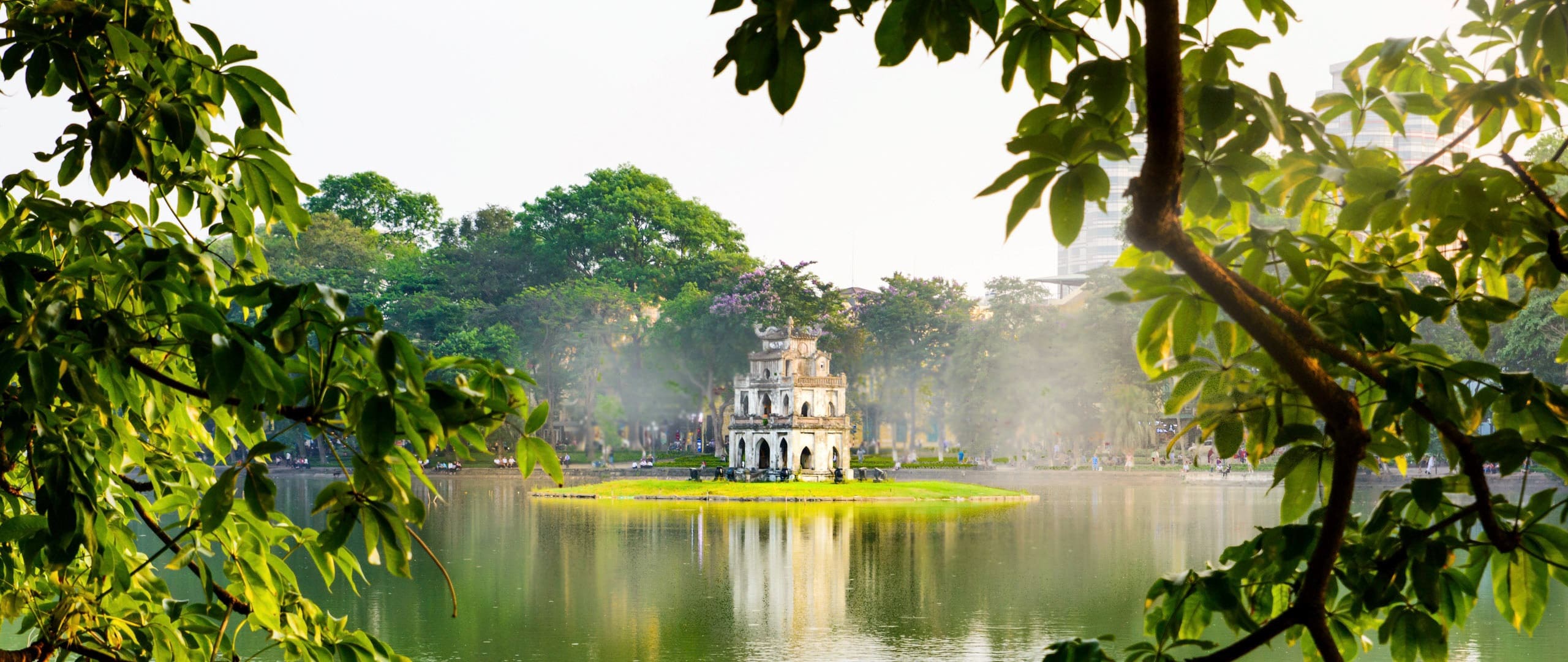 Hanoi (6)
Hanoi (6)
 Lao Cai (1)
Lao Cai (1)
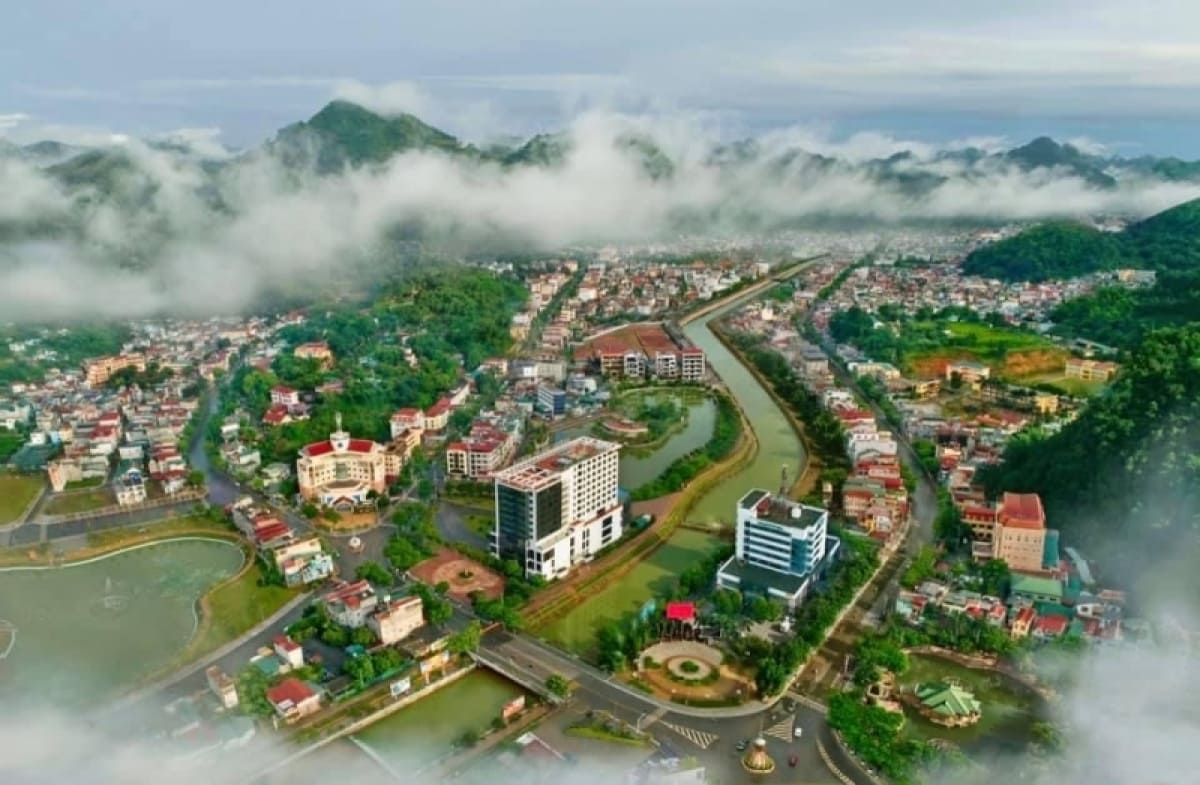 Son La (2)
Son La (2)
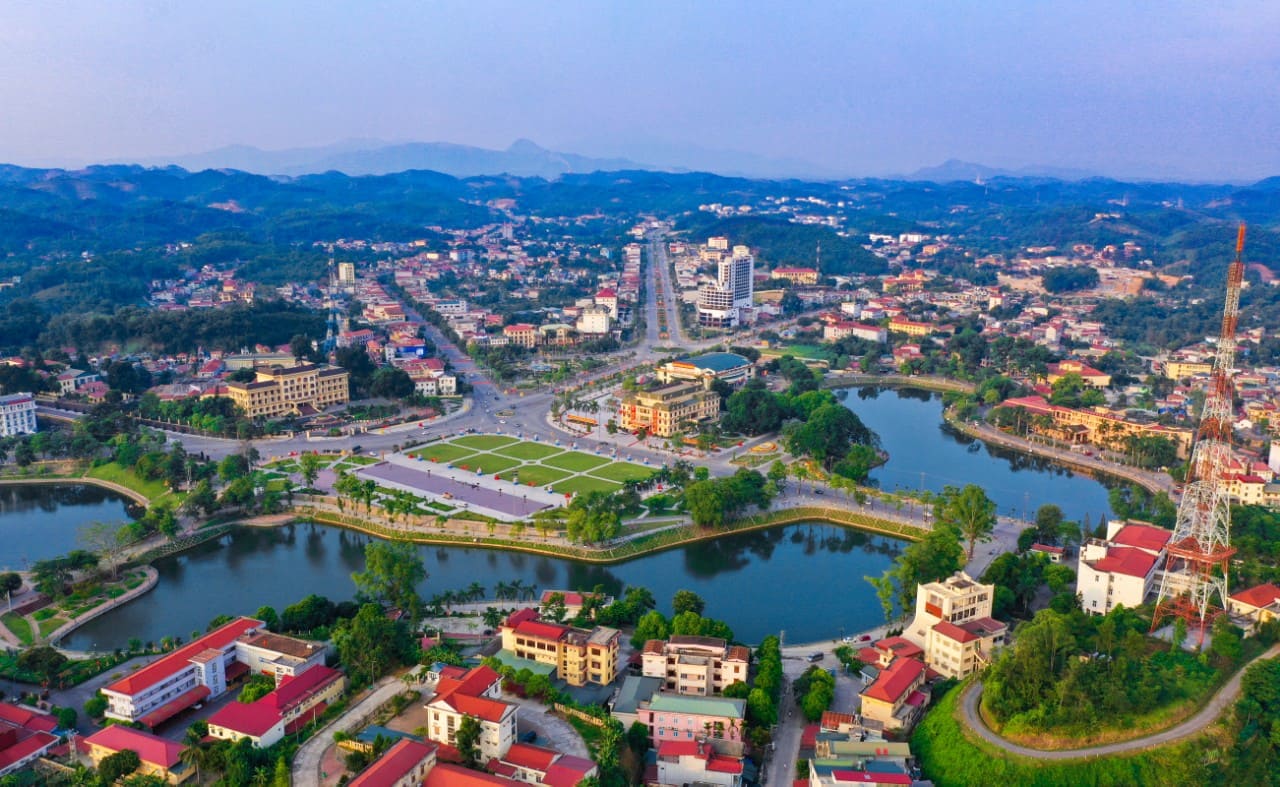 Yen Bai (1)
Yen Bai (1)
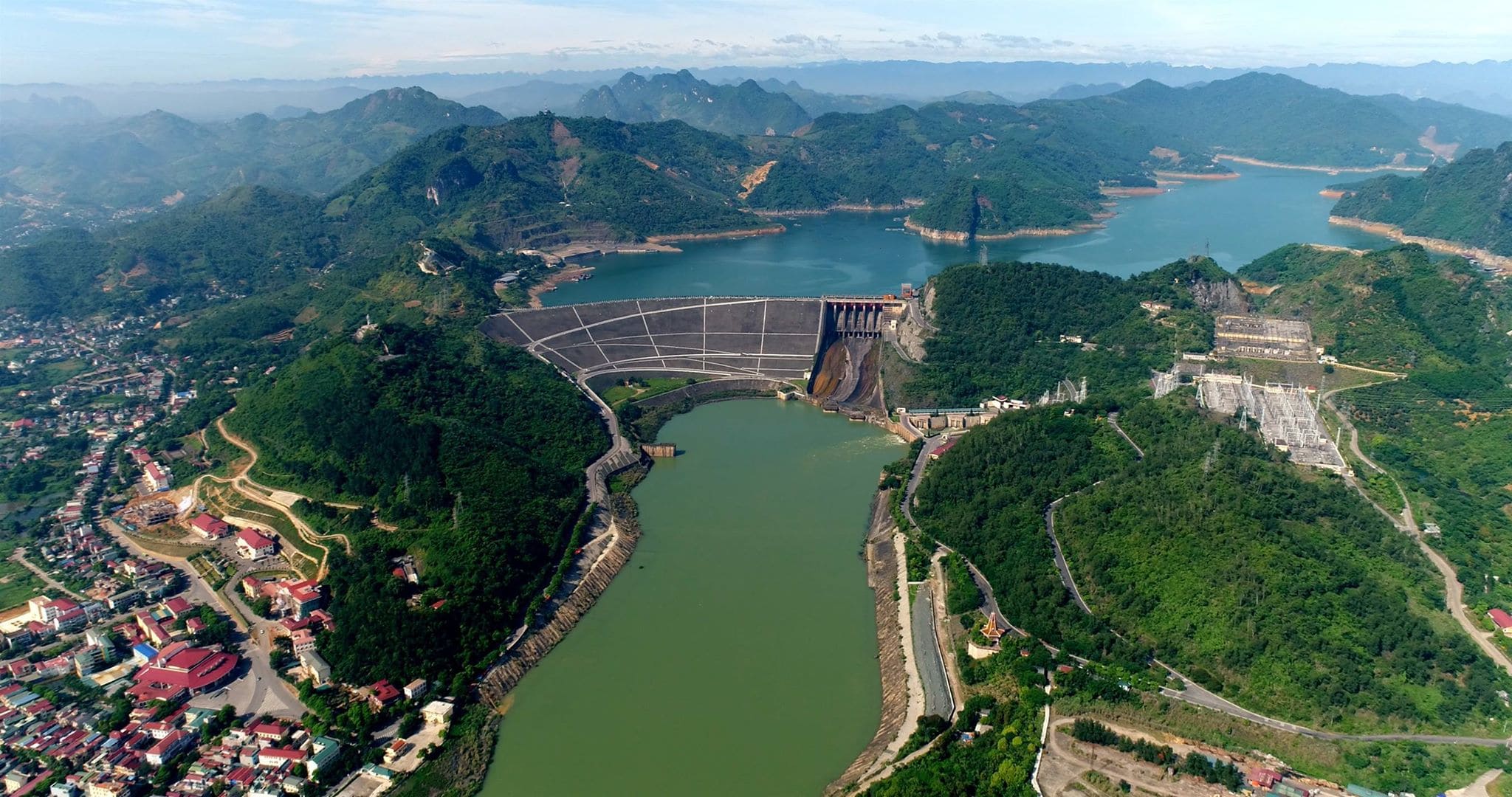 Hoa Binh (1)
Hoa Binh (1)
 Quang Ninh (18)
Quang Ninh (18)
 Ninh Binh (1)
Ninh Binh (1)
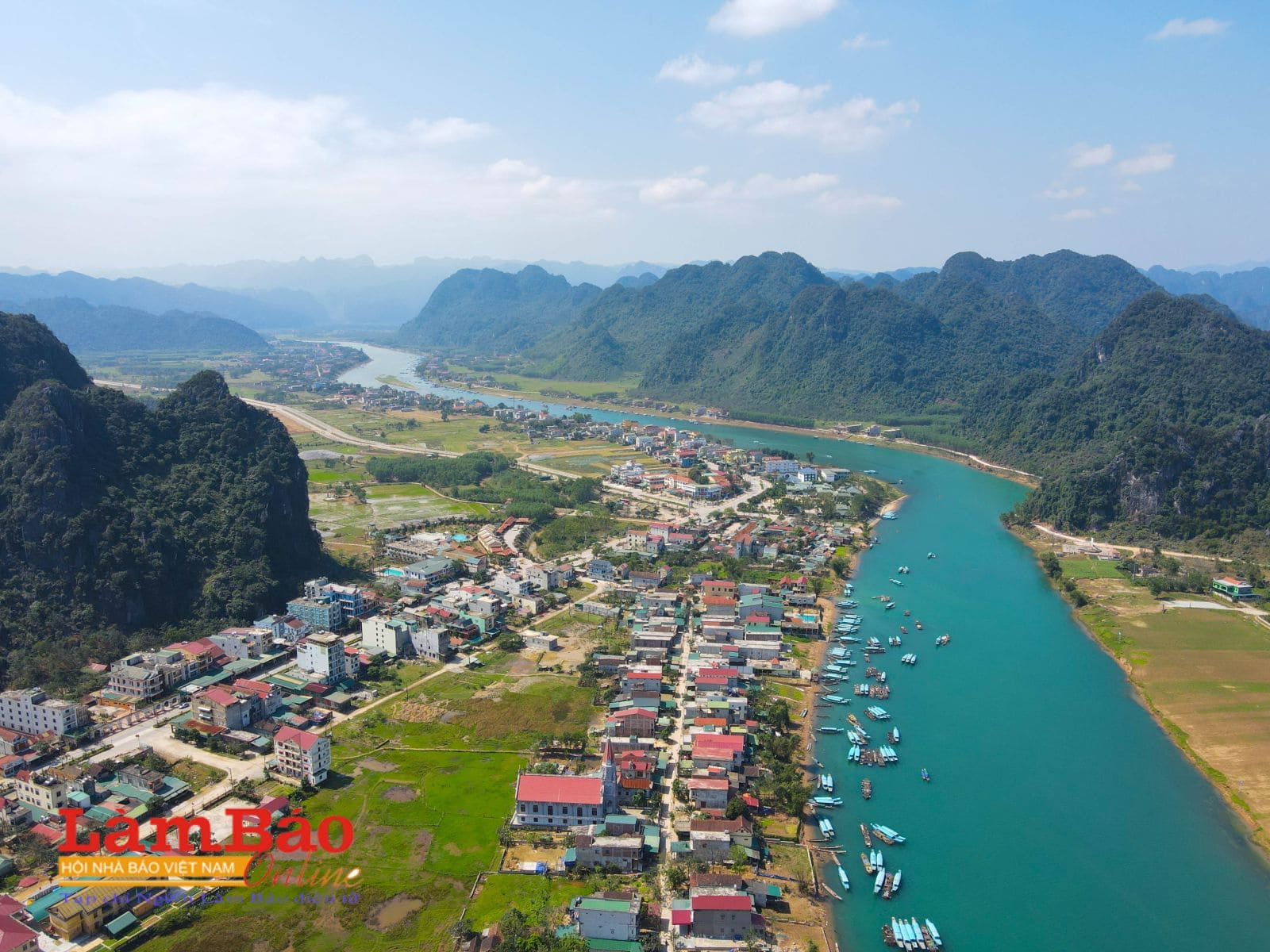 Quang Binh (2)
Quang Binh (2)
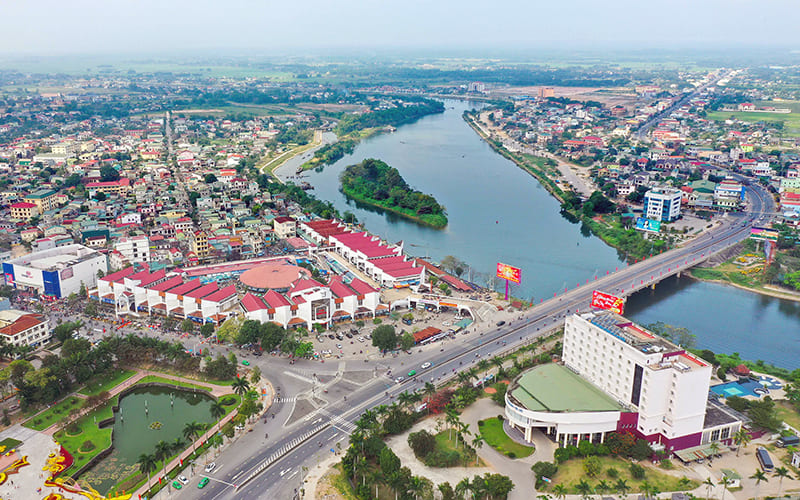 Quang Tri (1)
Quang Tri (1)
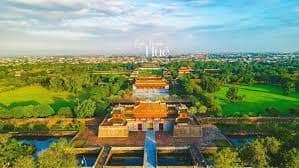 Hue (17)
Hue (17)
 Da Nang (24)
Da Nang (24)
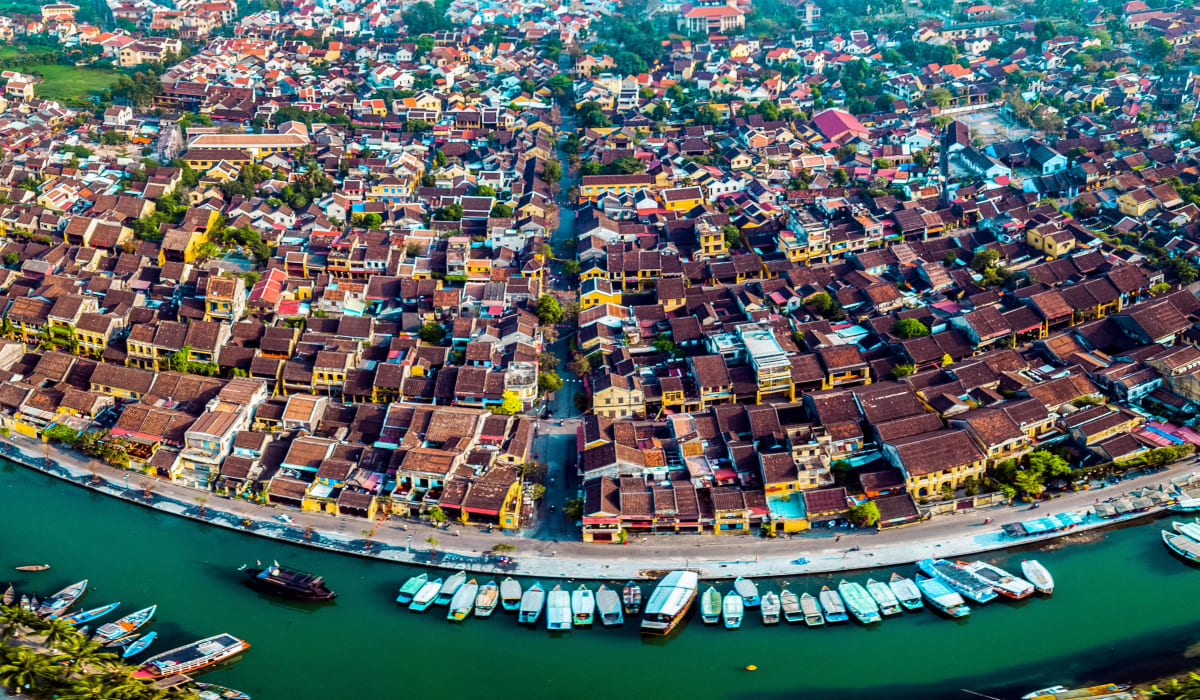 Quang Nam (16)
Quang Nam (16)
 Binh Dinh (1)
Binh Dinh (1)
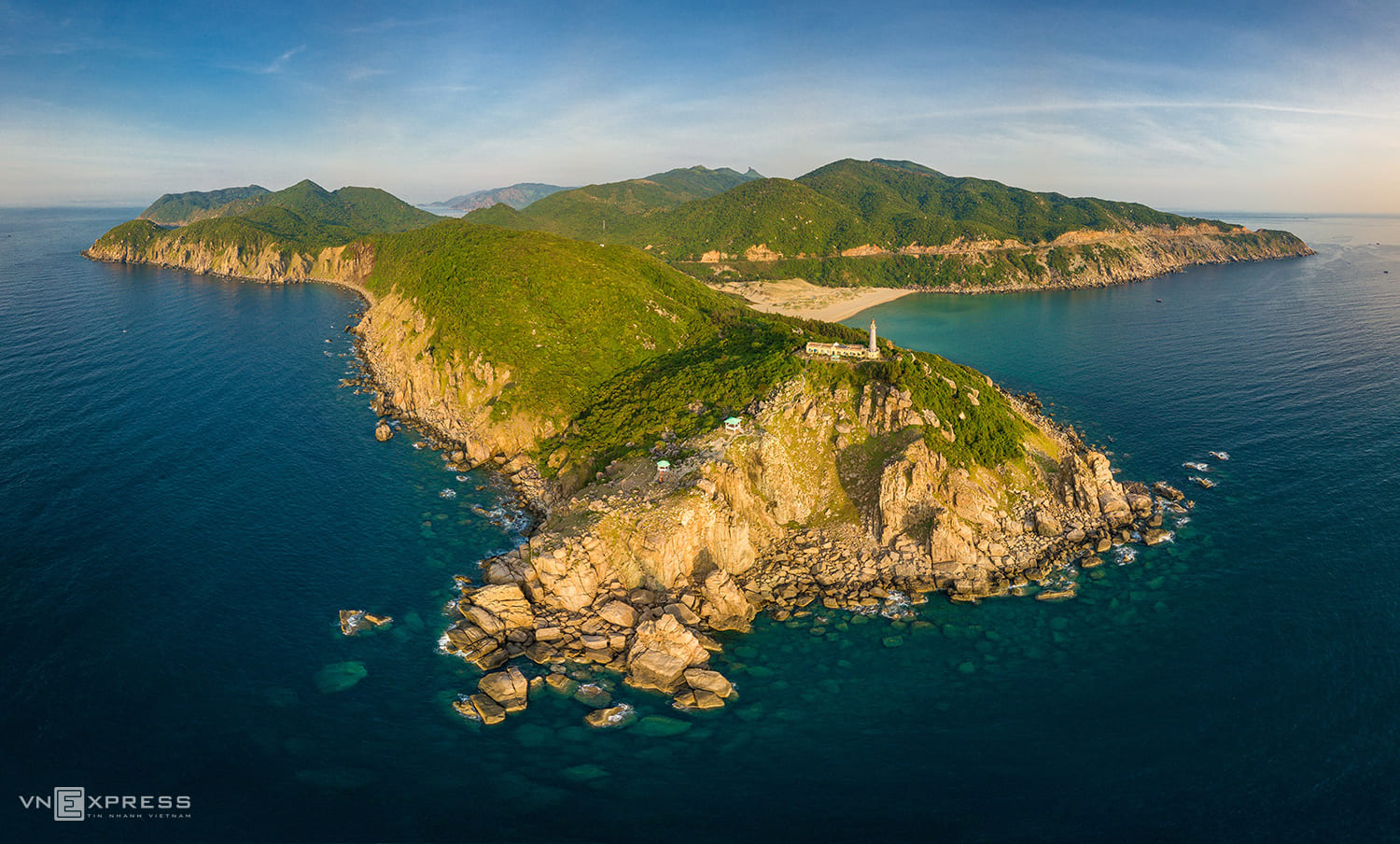 Phu Yen (1)
Phu Yen (1)
 Khanh Hoa (12)
Khanh Hoa (12)
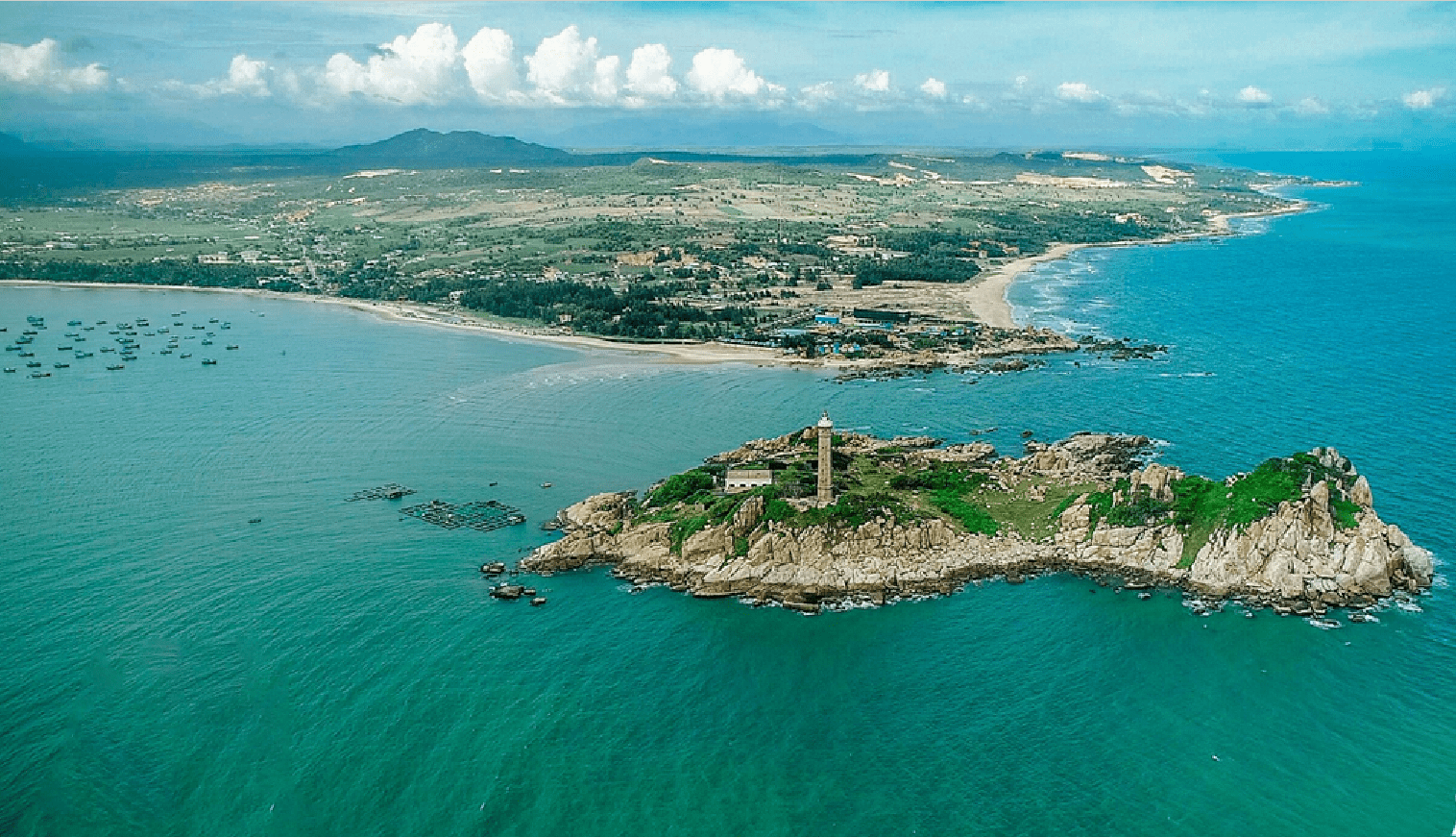 Binh Thuan (1)
Binh Thuan (1)
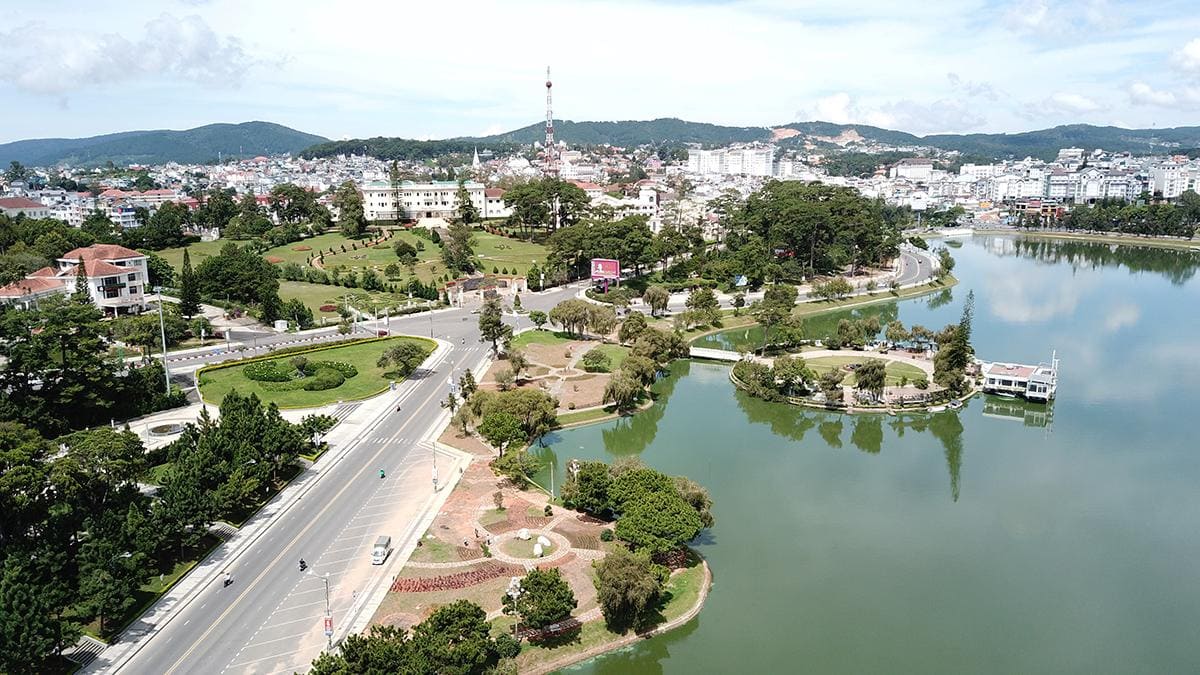 Lam Dong (7)
Lam Dong (7)
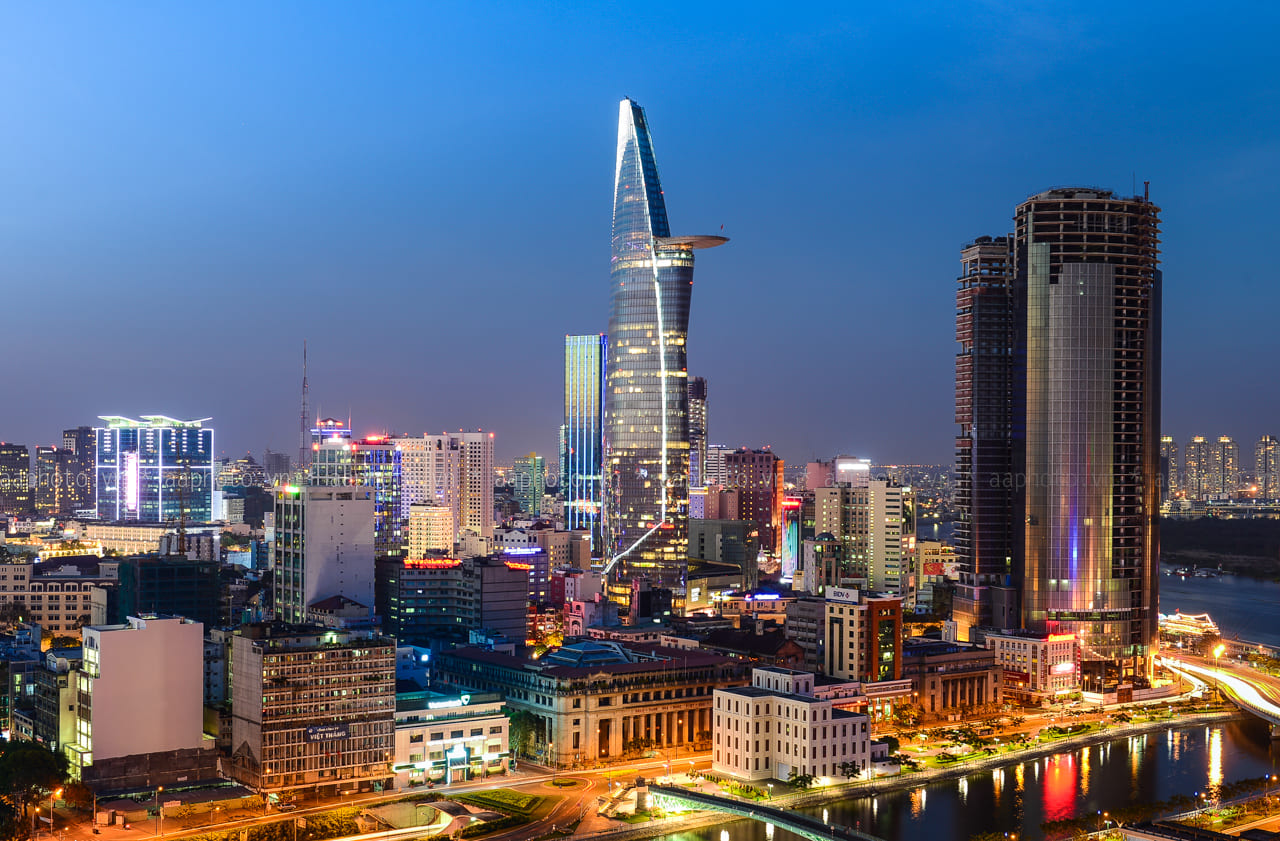 Ho Chi Minh City (3)
Ho Chi Minh City (3)
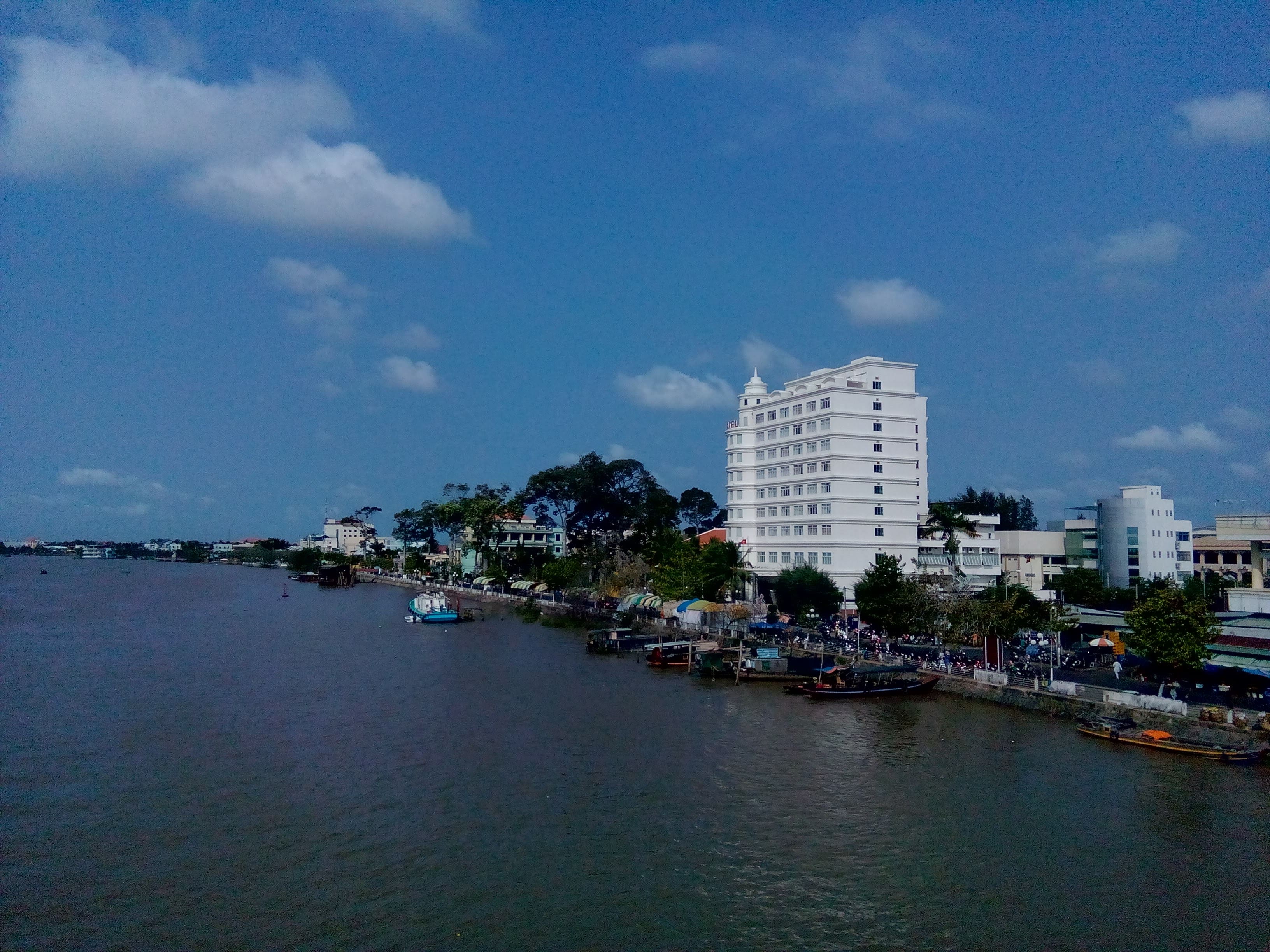 Ben tre (3)
Ben tre (3)
 An Giang (1)
An Giang (1)
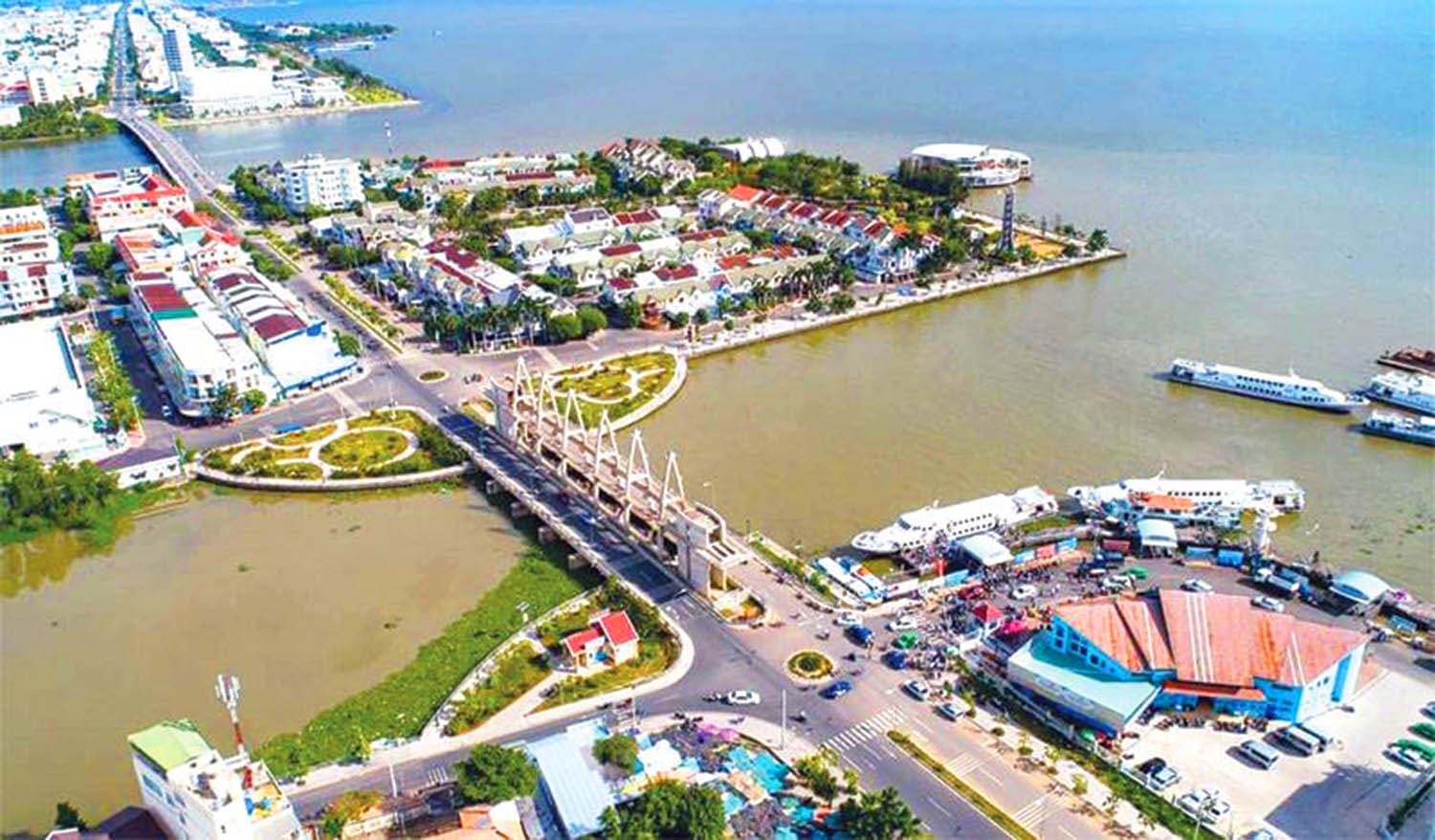 Kien Giang (4)
Kien Giang (4)
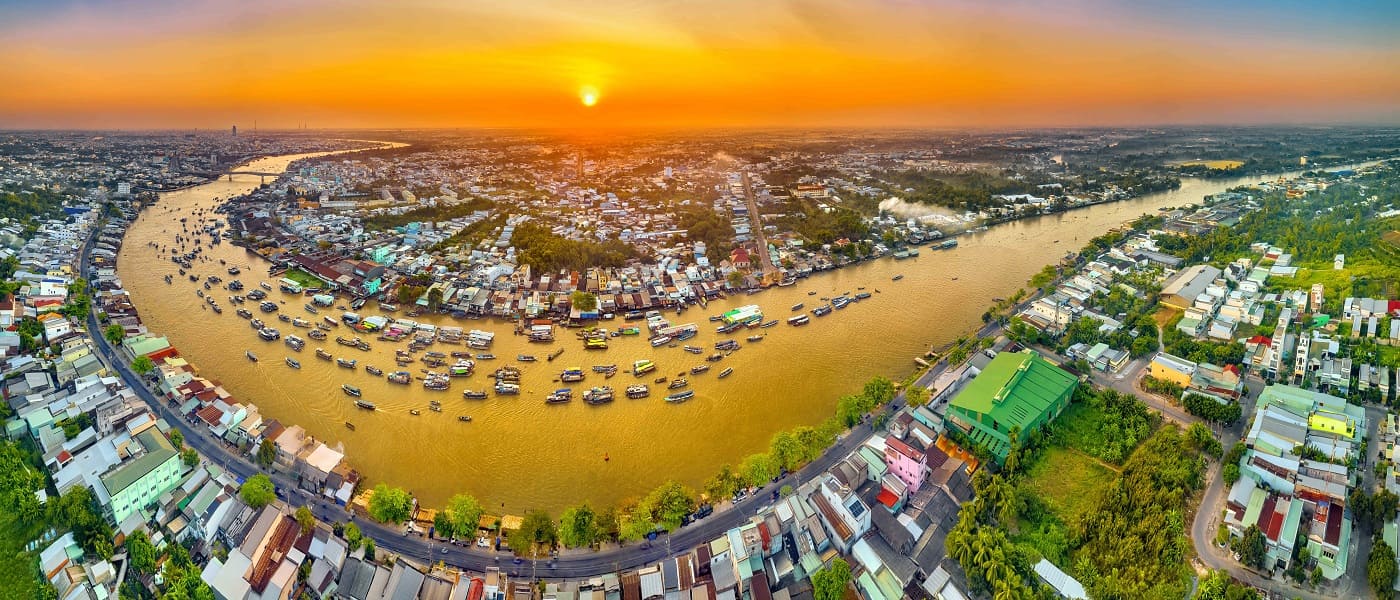 Can Tho (3)
Can Tho (3)
 Foreign (3)
Foreign (3)
135, Tung Dinh, Cat Ba Town, Cat Hai Island District, Hai Phong, Vietnam
Tourism Association Hai Phong Confirmed
Evaluate 3 () See map
Just words : Contact
Discount % member : 63Stravel Vip
Final price to pay : Contact
3.0 (1 Evaluate)
See all
Hotel
Tourism Association Hai Phong Confirmed
135, Tung Dinh, Cat Ba Town, Cat Hai Island District, Hai Phong, Vietnam
Just words : Contact
Discount % member : 63Stravel Vip
Final price to pay : Contact
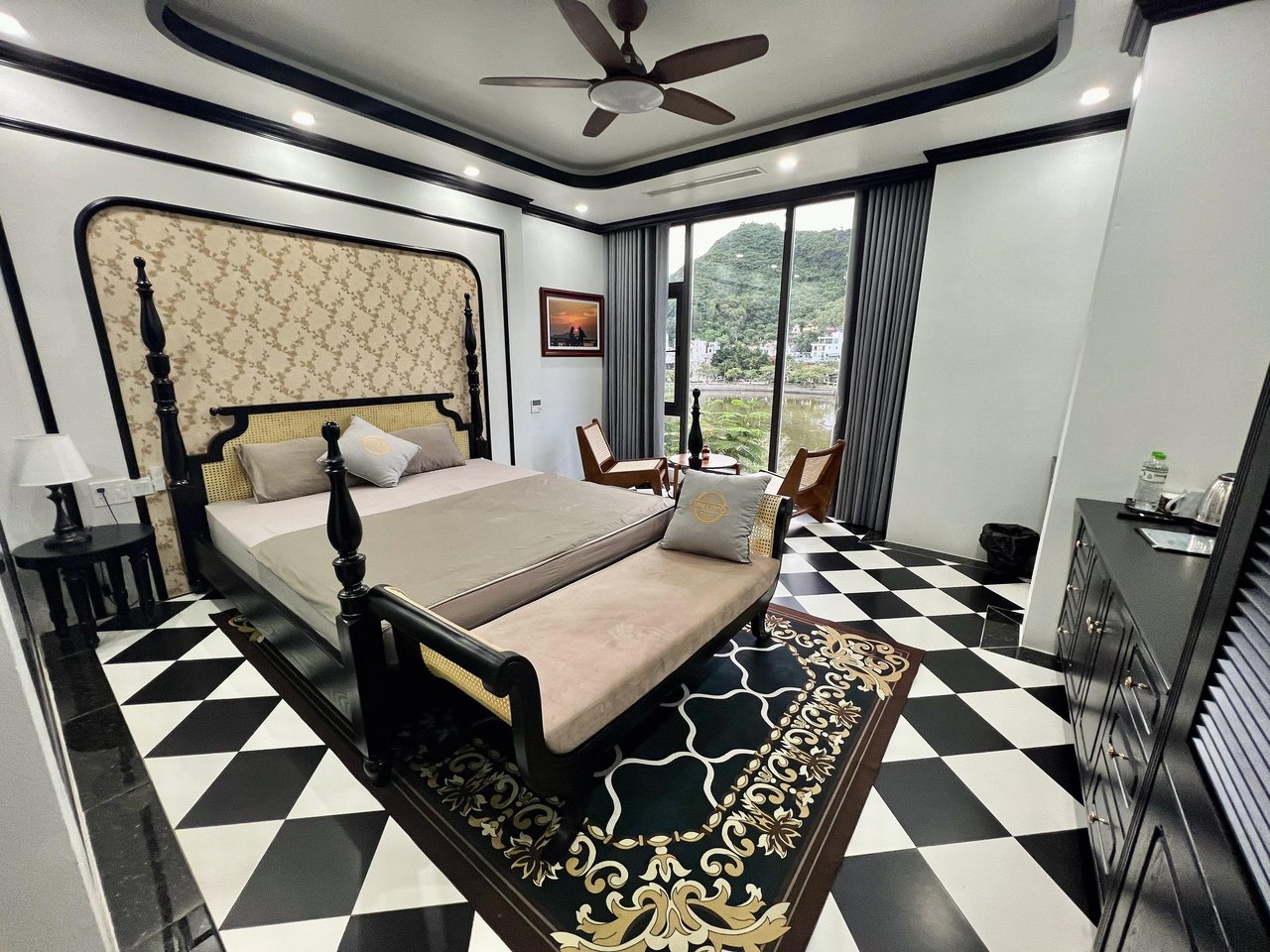
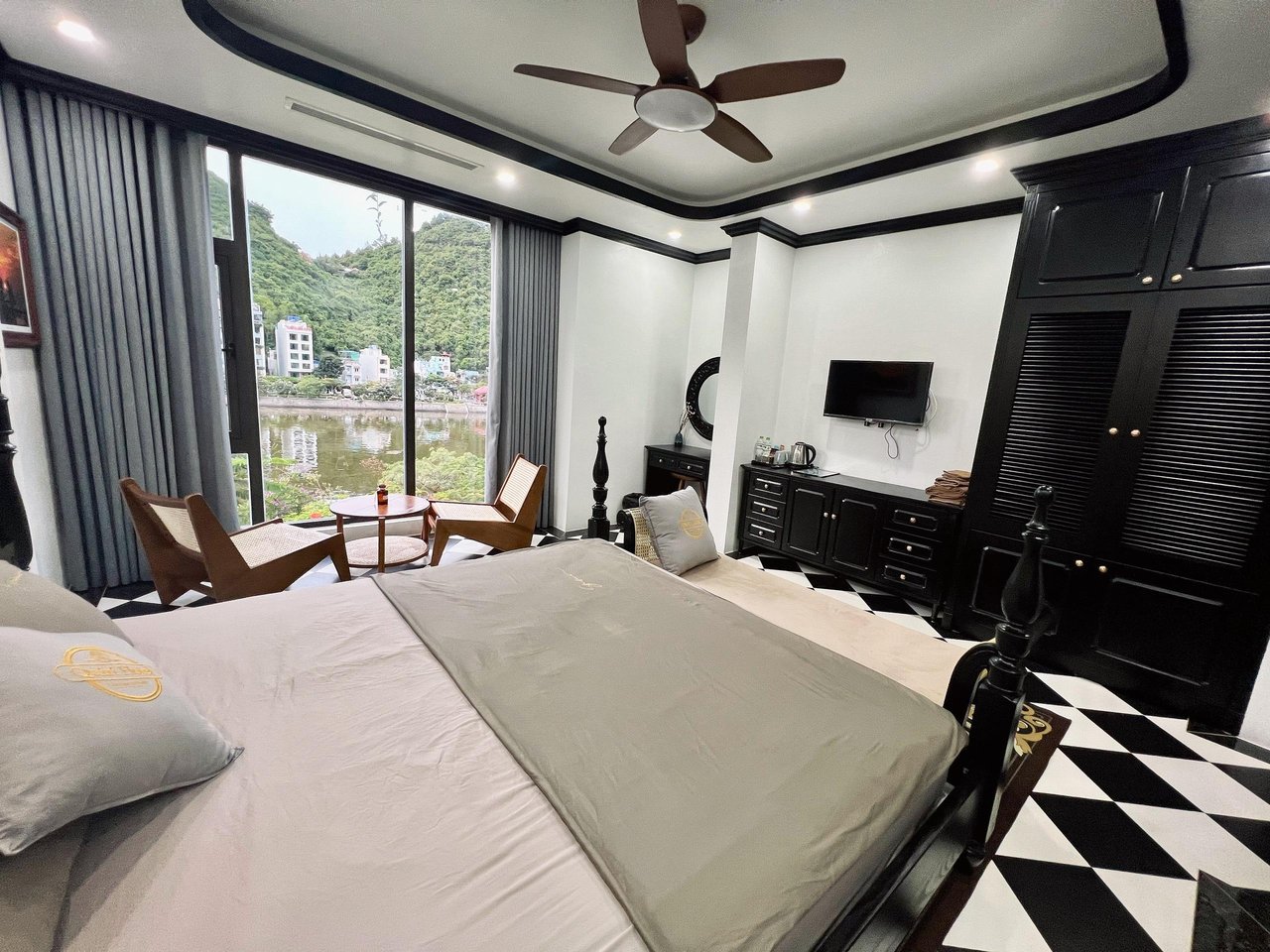
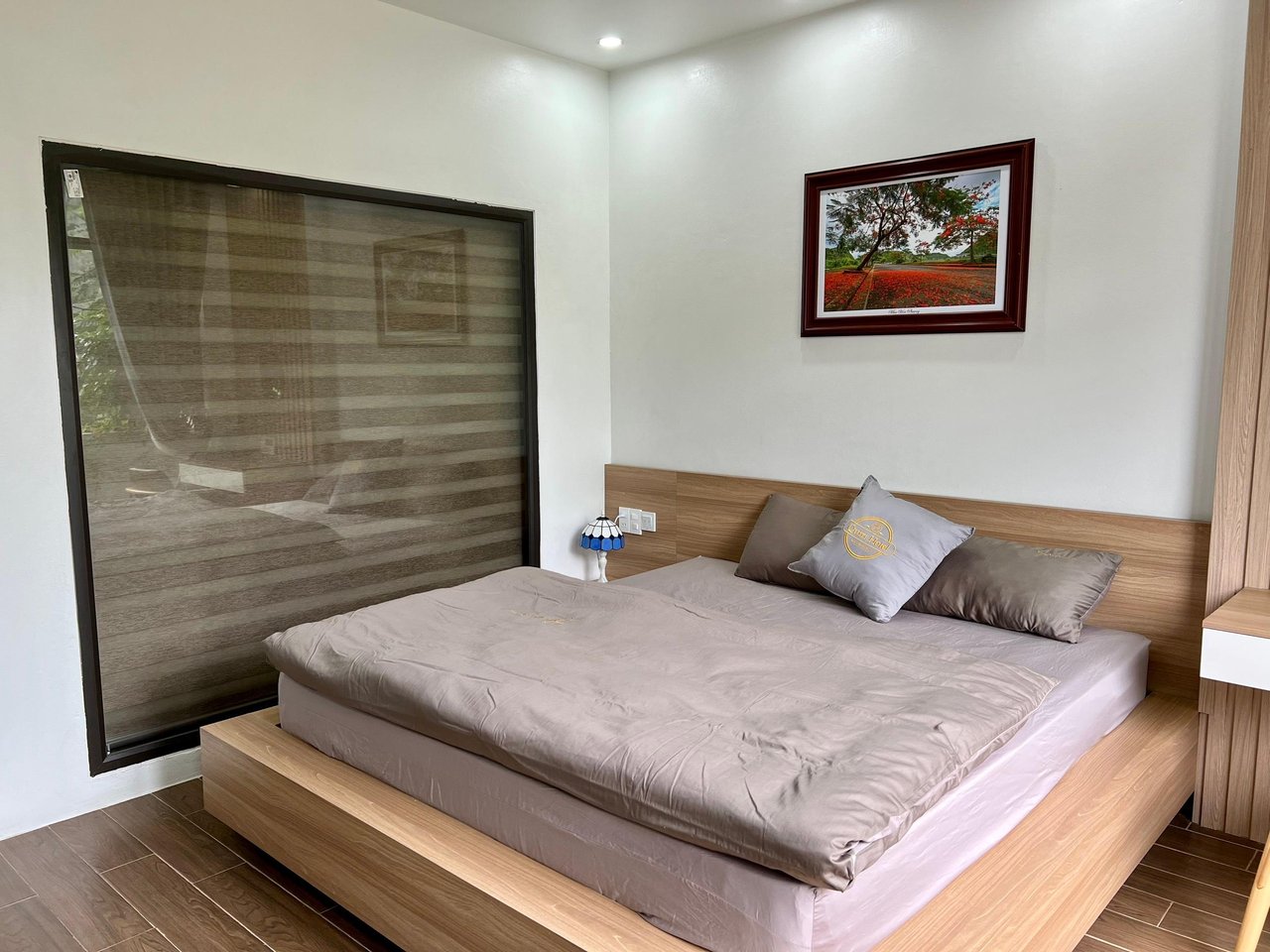
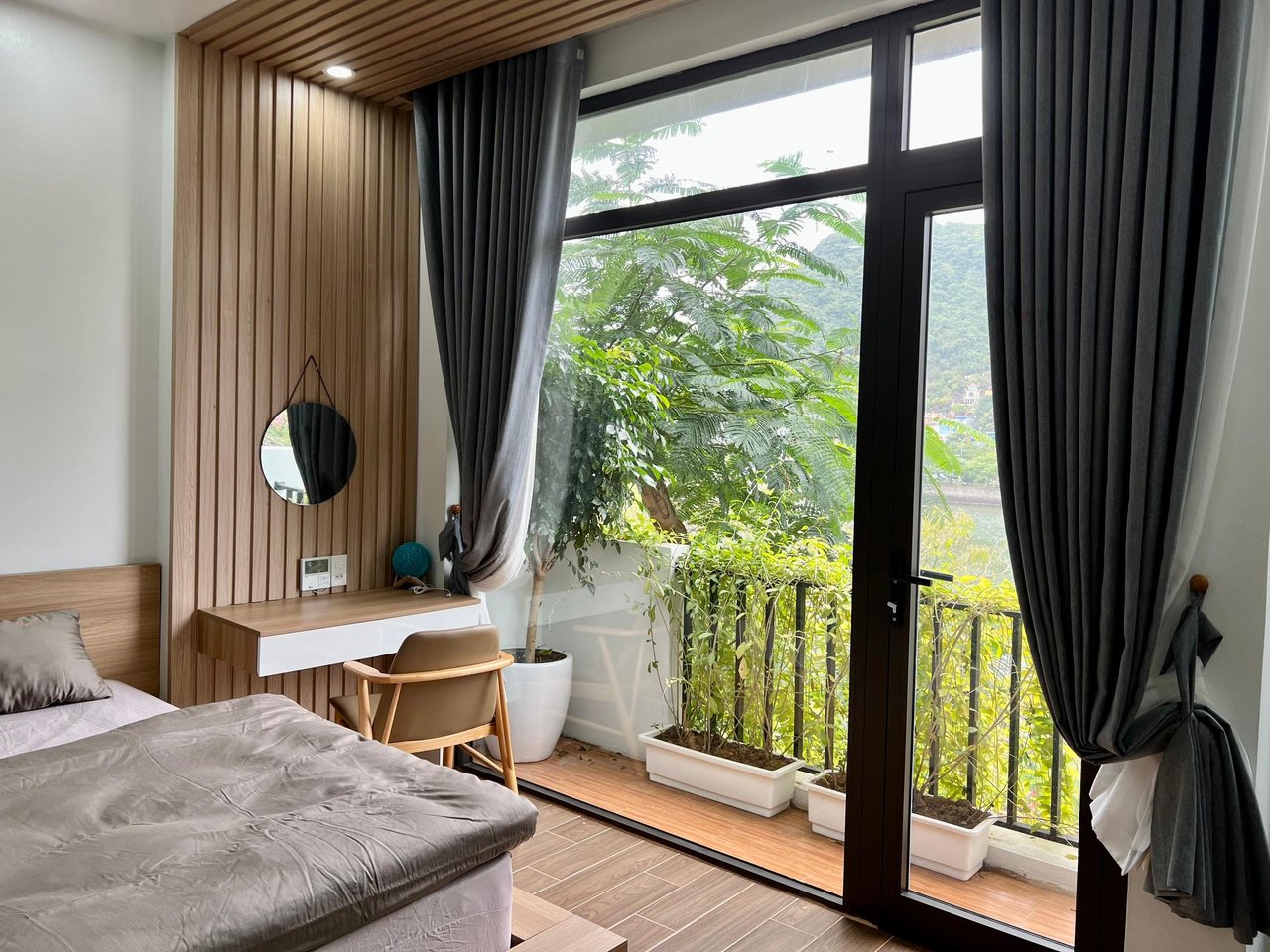
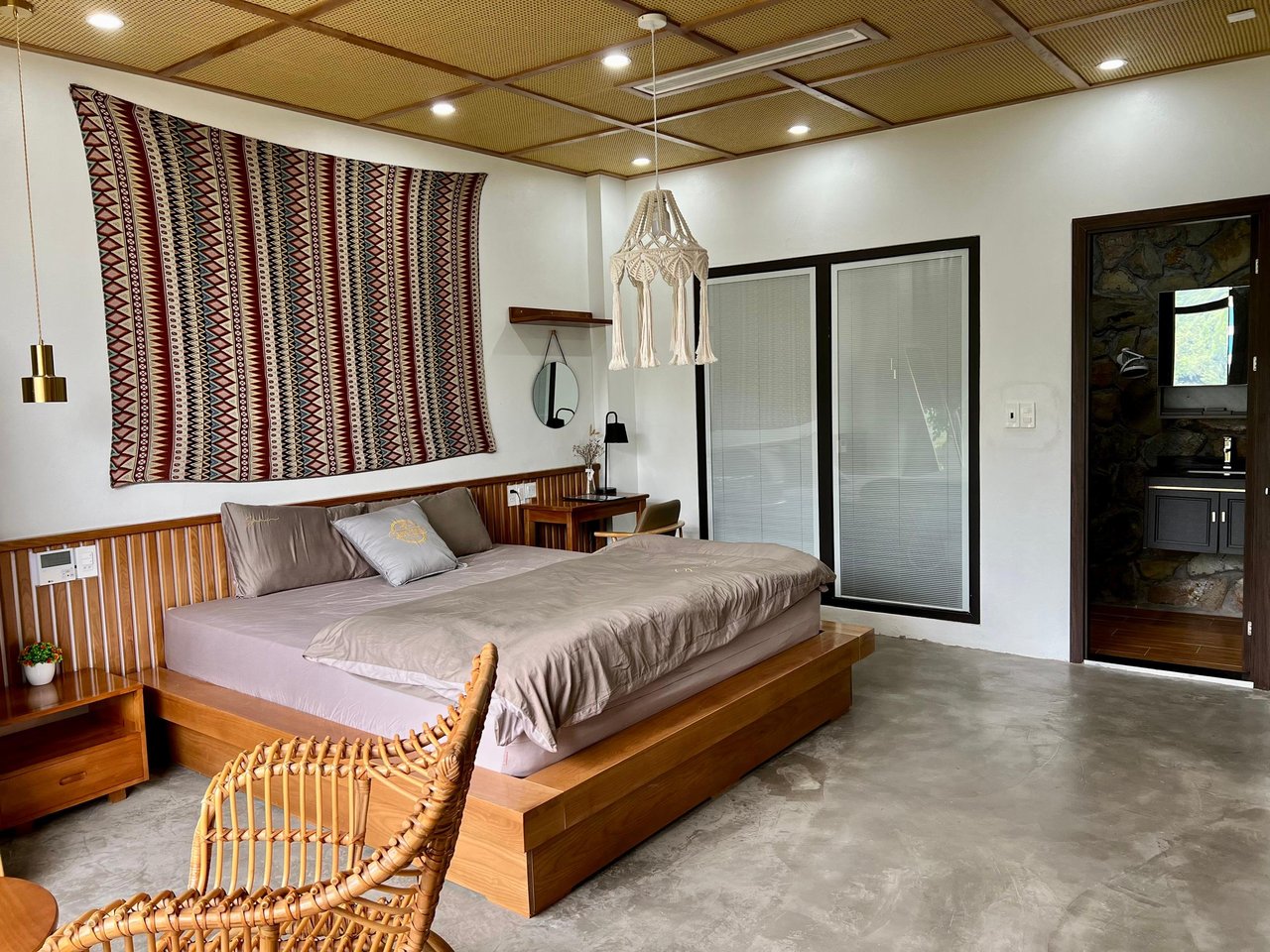
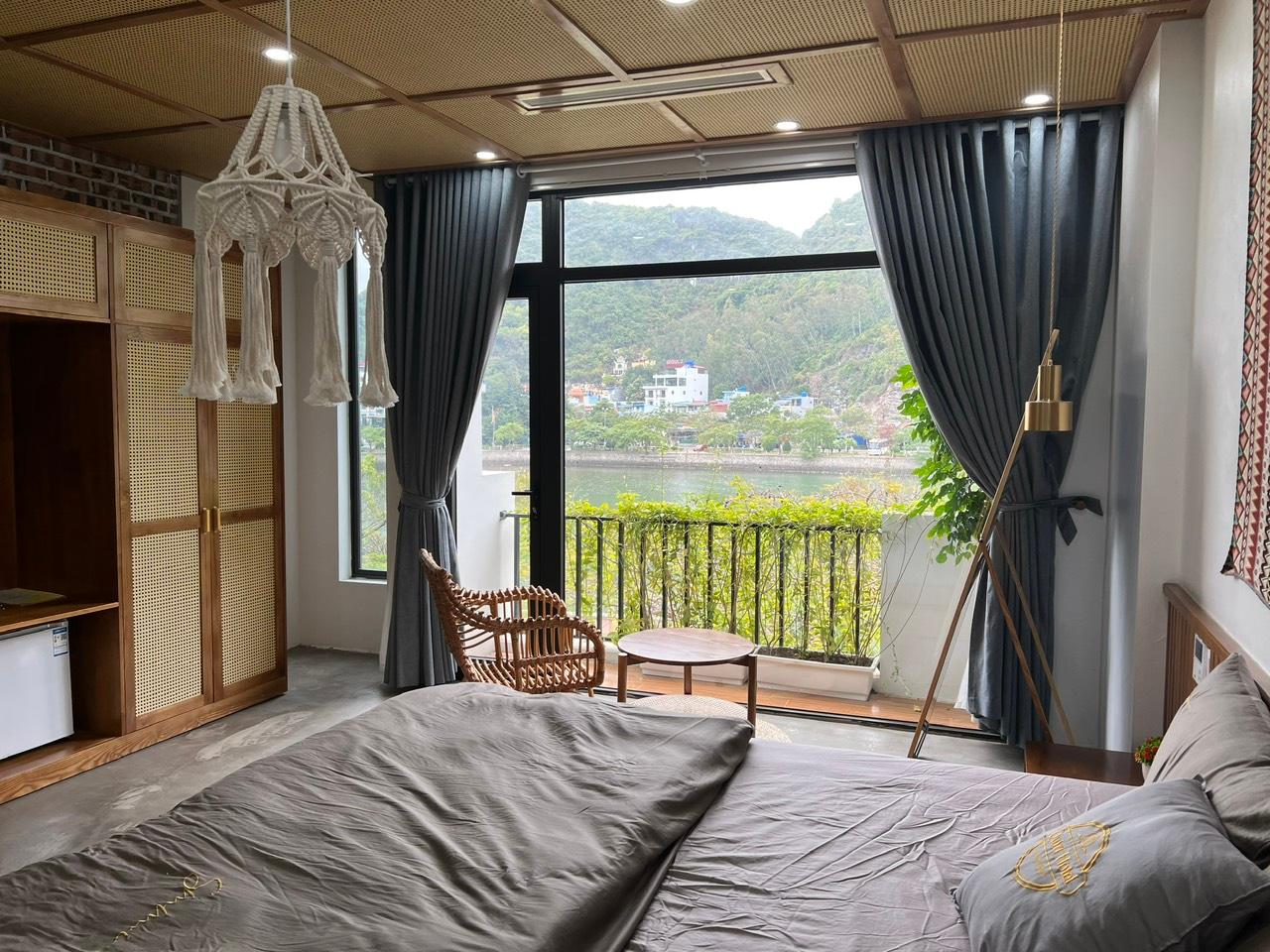
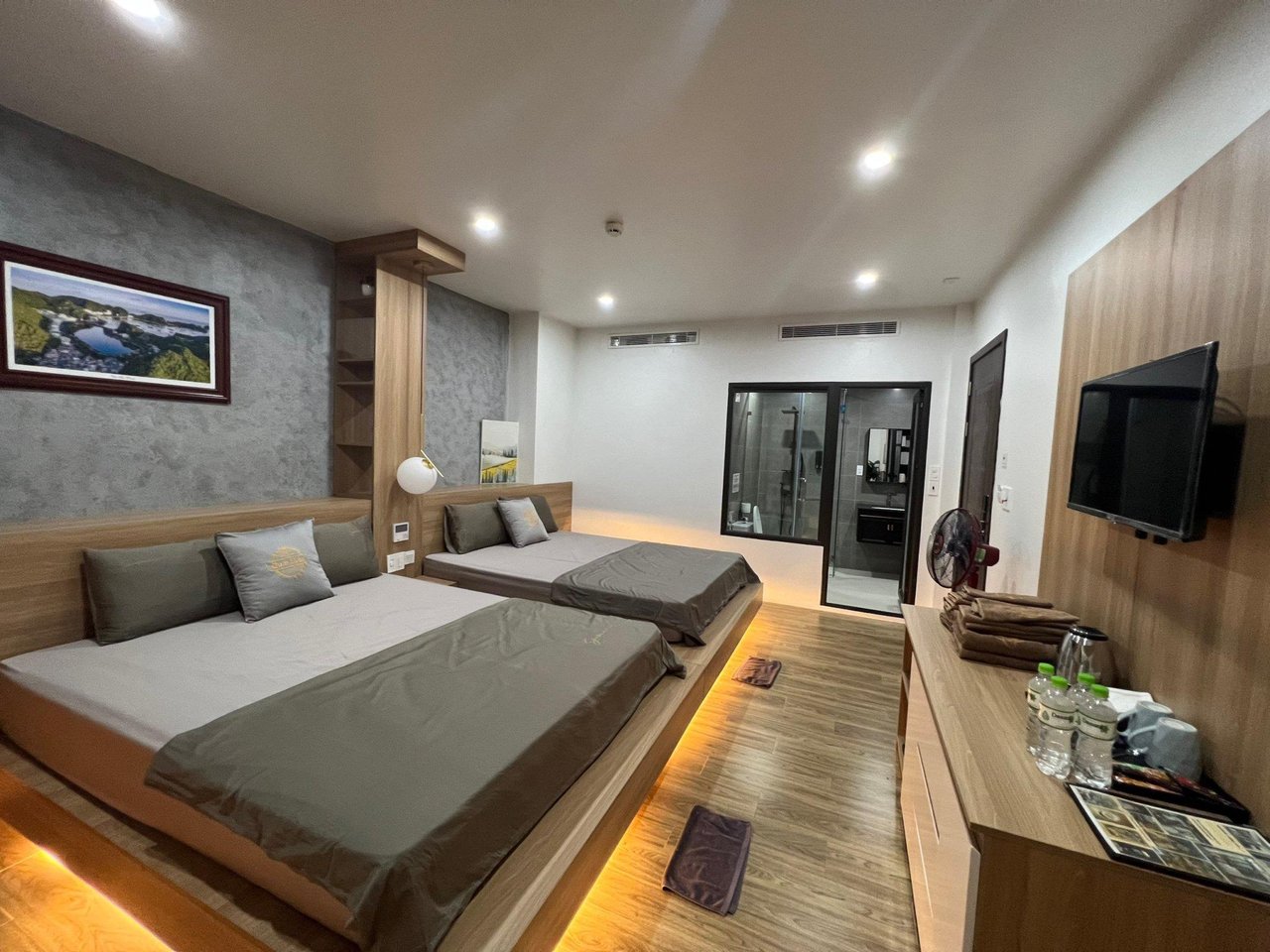
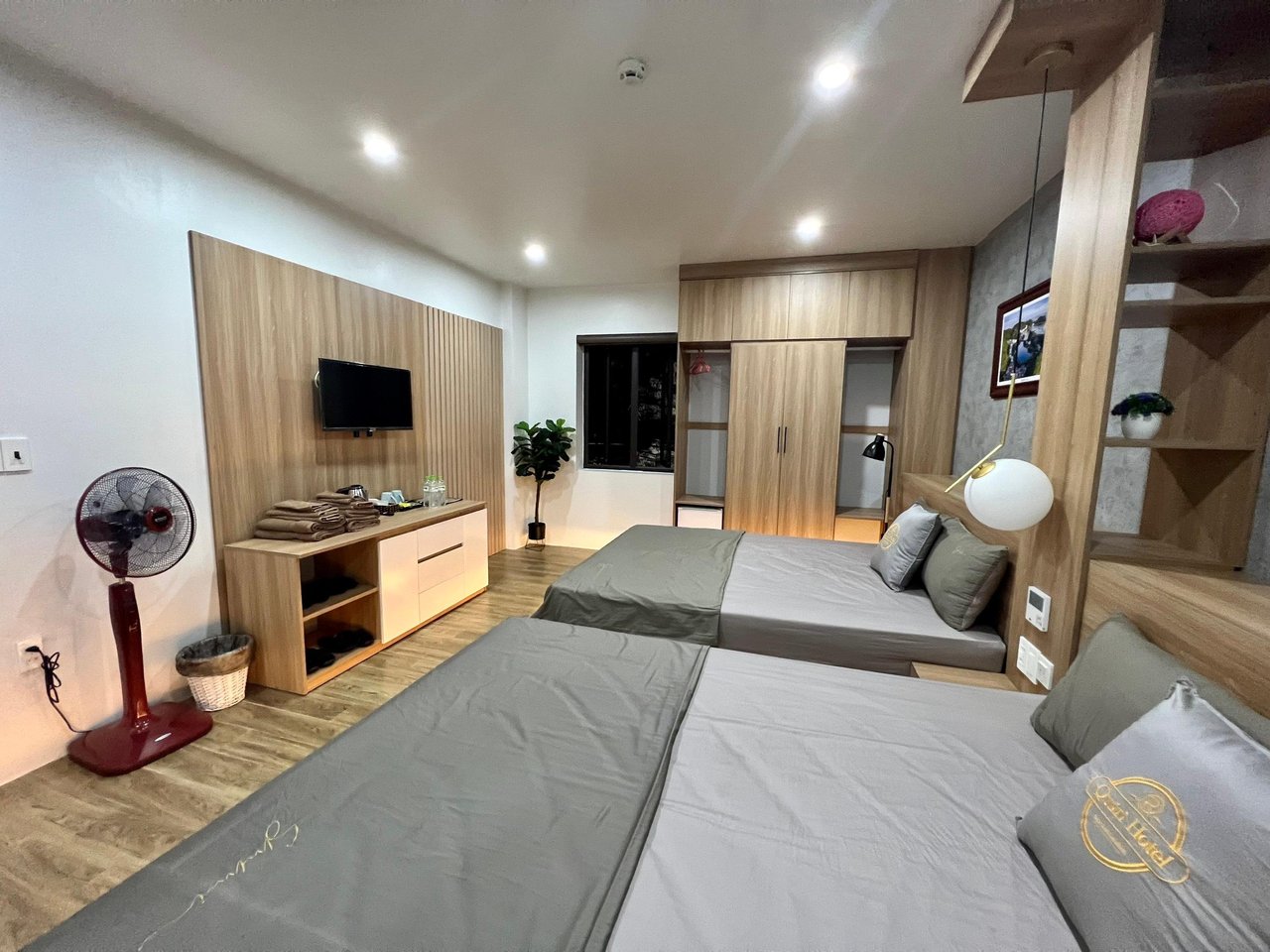
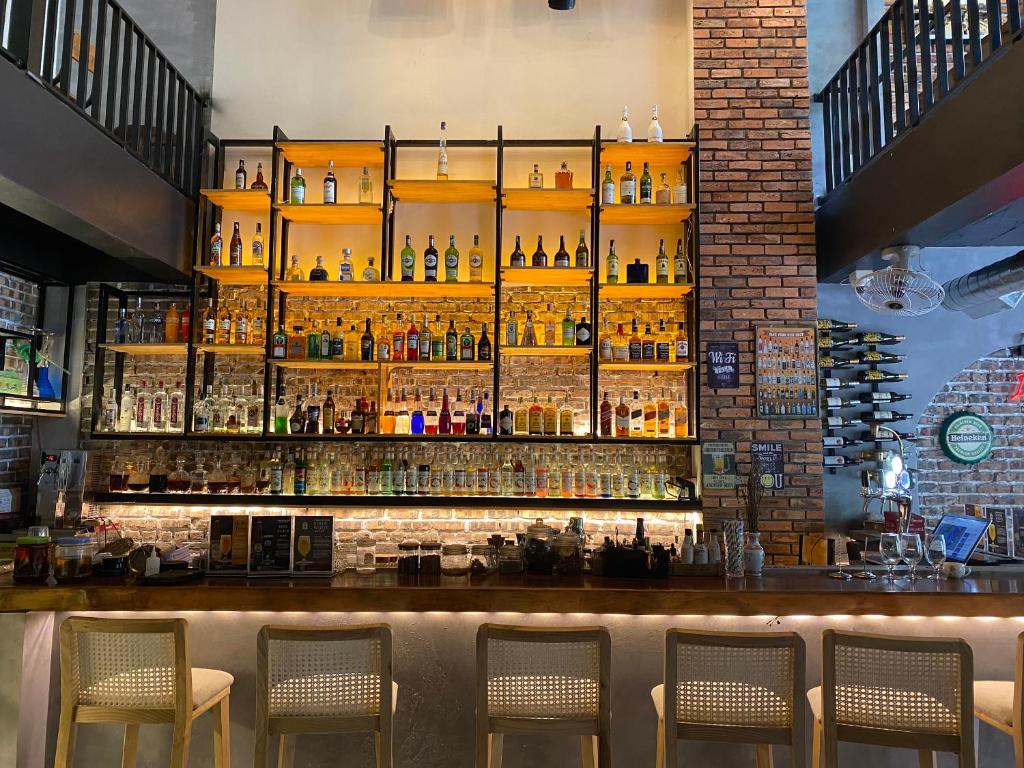
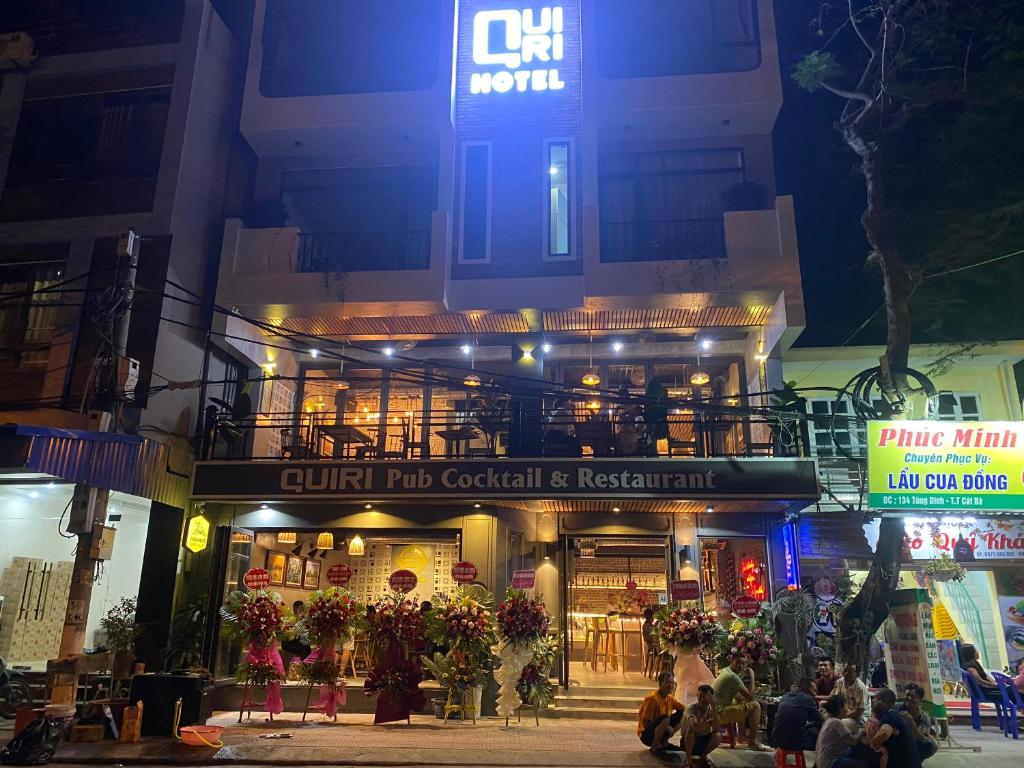
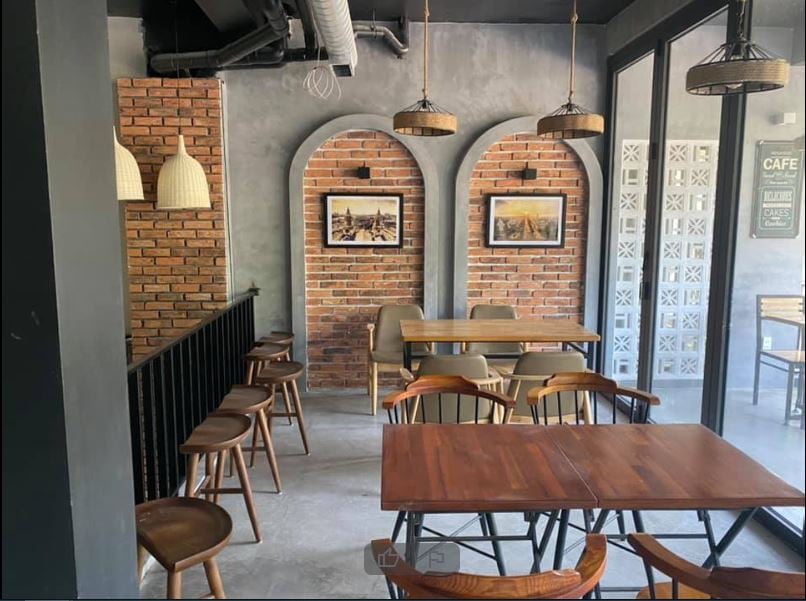
 Parking
Parking
 Receptionist
Receptionist
 Alarm
Alarm
 Selling tours
Selling tours
 Special help
Special help
 Keep your luggage
Keep your luggage
 Free internet
Free internet
 Daily cleaning
Daily cleaning
 Steam laundry
Steam laundry
 Laundry Service
Laundry Service
 Iron
Iron
 Dinner
Dinner
 Lunch
Lunch
 Breakfast
Breakfast
 Restaurant
Restaurant
 Alcohol
Alcohol
 No smoking
No smoking
 Air conditioner
Air conditioner
Located on Cat Ba Island, Quiri Hotel Cat Ba offers a restaurant, bar, shared lounge and garden. This property has family rooms and a terrace. The property provides a 24-hour front desk, room service and currency exchange for guests.
All rooms are equipped with air conditioning, a flat-screen cable TV, refrigerator, kettle, bidet, hairdryer and work desk. Rooms also feature free WiFi and a private bathroom with a shower and free toiletries. The rooms are equipped with wardrobes.
In addition, visitors will also be provided with free tea, coffee, small bottles of water and cakes;
Quiri Hotel Cat Ba serves an à la carte or Asian breakfast.
Guests can play darts at the property.
Popular points of interest near Quiri Hotel Cat Ba include Tung Thu Beach, Cat Ba Ferry Terminal and Cannon Fort. The nearest airport is Cat Bi International Airport, 35 km from the hotel.
General policy:
Children policy:
Kind of room : Indochine Room
* Room for: 2 people - 1 double bed * Maximum capacity of the room: 3 people * Standard number of guests: 2 people * Allowing 1 additional child to accommodate a maximum of 3 guests may incur an additional fee * City View, Lake View
Room price : Contact
Discount % member 63Stravel Vip
Final price to pay : Contact
Kind of room : Rustic Room
* Room for: 2 people - 1 double bed * Maximum capacity of the room: 3 people * Standard number of guests: 2 people * Allowing 1 additional child to accommodate a maximum of 3 guests may incur an additional fee
Room price : Contact
Discount % member 63Stravel Vip
Final price to pay : Contact
Kind of room : European Room
* Room for: 2 people * Maximum capacity of the room: 3 people * Standard number of guests: 2 people * Allowing 1 additional child to accommodate a maximum of 3 guests may incur an additional fee
Room price : Contact
Discount % member 63Stravel Vip
Final price to pay : Contact
Kind of room : Modern Room
* Room for: 4 people - 2 double beds * Maximum capacity of the room: 6 people * Standard number of guests: 4 people * Allowing 2 additional children to accommodate a maximum of 6 guests may incur an additional fee
Room price : Contact
Discount % member 63Stravel Vip
Final price to pay : Contact
3.0 (1 Evaluate)
See all
Located on Cat Ba Island, Quiri Hotel Cat Ba offers a restaurant, bar, shared lounge and garden. This property has family rooms and a terrace. The property provides a 24-hour front desk, room service and currency exchange for guests.
All rooms are equipped with air conditioning, a flat-screen cable TV, refrigerator, kettle, bidet, hairdryer and work desk. Rooms also feature free WiFi and a private bathroom with a shower and free toiletries. The rooms are equipped with wardrobes.
In addition, visitors will also be provided with free tea, coffee, small bottles of water and cakes;
Quiri Hotel Cat Ba serves an à la carte or Asian breakfast.
Guests can play darts at the property.
Popular points of interest near Quiri Hotel Cat Ba include Tung Thu Beach, Cat Ba Ferry Terminal and Cannon Fort. The nearest airport is Cat Bi International Airport, 35 km from the hotel.
General policy:
Children policy:
Summer is the most ideal time to travel to Cat Ba. From April to October, the weather is cool, suitable for relaxation and swimming. High season is from May to July. If you plan to go to the island between July and August, you should pay attention to the weather forecast three to five days in advance to ensure there are no storms. From November to March, the island is quite deserted. But this time is ideal to explore nature and relax. From Hanoi, visitors can take a private car to Hai Phong, cross the Tan Vu sea bridge to Got Ferry. The ferry stops at Cai Vieng wharf in Cat Hai district, driving about 20 km will reach the center of the island - Cat Ba town. In particular, the cost for cars with less than 9 seats includes 210,000 VND for roads and bridges, 190,000 VND for ferries. Ferry fee for motorbikes is 45,000 VND per motorbike. If traveling by bus, a ticket from Hanoi to Got Ferry station costs about 150,000 VND, then to the island by ferry costs 12,000 VND per person. In addition, visitors can choose car companies to go straight to the center of the island, for 250,000 VND per person. Cat Hai - Phu Long cable car helps save time getting to the island, only 10 minutes, instead of 20 - 30 minutes by ferry. Crossing Tan Vu bridge towards Got Ferry, visitors enter Cat Hai cable car station according to the roadside sign. Round-trip cable car ticket price is 200,000 VND per person, 150,000 VND for people with Hai Phong household registration. There is parking at the station. The cable car operates from 9:00 am - 4:00 pm on weekdays, 9:00 am - 5:00 pm on weekends. On the island there is a motorbike rental service, about 40,000 VND per hour and 200,000 VND per day. Taxi service from Cat Ba center runs along the sightseeing route, costing 200,000 - 500,000 VND both there and back. Places you can visit and have fun when coming to Cat Ba include: Lan Ha Bay, Cai Beo ancient fishing village, Monkey Island, Cat Ba National Park, Military Hospital Cave, Trung Trang Cave, Cannon Fort, Beautiful beaches on Cat Ba island. Cuisine in the Gulf is mainly seafood. Tourists whisper to each other about specialties such as sea crab, geoduck, grouper, lobster, shrimp, sea snakes, snails, shrimp vermicelli... In addition, seafood can be bought as gifts, at a reasonable price. Reference prices are about 500,000 - 700,000 VND for a pair of crabs, 200,000 - 250,000 VND per kg of geoducks, lobsters from 600,000 VND to 1.8 million VND per kg... To enjoy cuisine, visitors can go to Cat Ba market, where there are many eateries with meals or buffets. In addition, Thuy Anh grilled hot pot restaurant on Cai Beo street is one of the restaurants chosen by many tourists. Average price is 200,000 VND per person. You should not swim after 6pm because the tide is high. You should travel by cable car on weekends because the Got ferry terminal is often overloaded. Tours to explore the bay may reduce some spots such as beaches and small islands due to high water levels. Before shopping, eating, visitors should ask the price.
Hai Phong
From April to October
2652 view
Lan Ha Bay is located in the south of Ha Long Bay and east of Cat Ba island. The total area of the bay is about more than 7,000 hectares, highlighted by the majestic beauty of about 400 dense islands, large and small, with many unique shapes. Unlike Ha Long Bay in Quang Ninh, all islands in Lan Ha Bay are covered with green trees, even though they are extremely small islands. With a cool, fresh climate, you can travel to Lan Ha Bay at any time of the year. Normally, domestic tourists go in the summer from April to October. The weather at this time is beautiful sunny, clear blue sea, suitable for relaxing swimming and boating on the bay. As for foreign tourists, Lan Ha Bay becomes most beautiful from November to March. To get to Lan Ha Bay, you move to Ben Beo from the center of Cat Ba island, here buy tickets to visit the bay and then rent a boat to go to the tourist destination you want. If you only go around the bay, near the shore and not far, you should rent a motorboat from local people for convenience. In addition, with large groups, you can proactively rent a boat at the wharf. If you intend to rest in areas outside the bay such as Cat Ba Sandy Beach, Monkey Island Resort, you can ask to rent a boat to visit the bay at these resorts. Luon Cave is located on Bo Hon Island, on the right is the Heaven Gate, in front of the cave is Turtle Island. The cliffs surrounding the cave stand tall, and the water in the cave is clear and calm in all seasons. Luon Cave is a tourist destination in Lan Ha Bay that attracts tourists not only because of its unique shape but also because of its harmonious and charming natural scenery. From Beo wharf, follow the direction of Lan Ha Bay for about 15 minutes and you will reach the pristine Nam Cat island. This place attracts tourists because of its pristine features, without much artificial intervention. On the island there are 3 large wooden stilt houses and 6 guesthouses made from bamboo. When resting here you will be immersed in nature and the flavors of the sea. In addition, the beautiful Nam Cat beach is also a place for visitors to comfortably splash in the clear blue water, freely watching schools of small fish, coral reefs or bunches of seaweed. There are a full range of services to serve tourists such as kayaking, scuba diving, fishing... to group activities such as campfires and night activities. To get to Monkey Island, tourists will take a boat from Ben Beo, taking about 10 minutes through Cai Beo fishing village and some small islands. Previously, Monkey Island was called Cat Dua Island because there were many wild pineapple trees on the island. Currently, the name of the island is called Monkey Island because on the island there are more than 20 monkeys released here by the management board of Cat Ba National Park. Friendly monkeys often go to the beach to play with tourists, eat food given by tourists such as bananas, apples, tangerines, candies... they freely play and climb, creating a special impression on those who have visited them. come here. Located in the calmest part of the Bay, clear blue sea water and charming scenery make Van Boi beach popular with tourists. When traveling to Lan Ha Bay, everyone will be attracted by the shy, girl-like beauty of this landscape. This is a suitable place for kayaking as well as swimming. Seafood in Lan Ha Bay is very diverse and rich such as mud crabs, geoducks, sea horseshoe crabs, lobsters, sea snakes... However, the delicious specialties that you must definitely enjoy when coming to Lan Ha are grilled sea horseshoe crabs. , oven-baked lobster with egg sauce, salt-roasted crab, grilled geoduck, wine-poached lobster...
Hai Phong
April to October
1777 view
About 20km from Hai Phong city center and about 120km from Hanoi capital, Do Son is known as a district of Hai Phong as well as a small peninsula that gradually narrows as it reaches the sea. Different from the white sand strips of the Central Sea, Do Son Beach possesses the characteristics of the Northern Sea, which is cloudy water and brown sand. However, because of its location near Hanoi, Do Son beach is always an ideal tourist destination in Hai Phong for people of the Capital as well as nearby provinces every summer. Do Son Beach always welcomes you at any time of the year. However, you should come at the beginning of the year and summer to fully enjoy the atmosphere here. Outside Do Son beach, you can participate in some traditional festivals to discover more about the culture here such as visiting Ba De temple, Dau island festival,... From Hanoi station, Long Bien station or Gia Lam station (if you want to bring a motorbike, you should go to Gia Lam station) to Do Son Beach takes nearly 3 hours. You can buy tickets directly at the counter or online on the station's website. Trains to Hai Phong during the day run at 6:00 a.m., 9:17 a.m., 3:20 p.m. and 6:15 p.m. Train ticket prices are quite cheap, only from 52-85k/trip depending on seat type. Coming to Hai Phong, you can travel by taxi or bus to Do Son beach. In addition to the poetic natural scenery, Hon Dau Island also owns a magnificent tourist area with the largest artificial swimming pool in Asia. Besides, Hon Dau tourist area also has a zoo, bird garden and other attractive entertainment areas. If you don't like too much noise, you can also visit Hon Dau yourself, check in with the rocky beach, sunset or lighthouse that is over a hundred years old here. Your travel guide will be missing a page if you don't enjoy seafood at Do Son Beach. Especially in Do Son area 2, Hai Phong, there are coastal seafood restaurants and eateries for you to choose from, including surface fish, squid, shrimp,... In addition to Do Son seafood, you can also enjoy some specialties here such as Hai Phong crab cakes, shrimp rolls, Hai Phong crab spring rolls,... or you can also bring home local products. names like Bang La great-grandchild fish sauce, pork sausage, etc. Although it is among the "old-timers" in the sea tourism industry, Do Son Beach still has its own charms. Coming to Do Son beach, you can bask in the cool water, enjoy famous specialties, and explore the beautiful scenery. What could be more wonderful than that? Pick up your backpack and experience it right away.
Hai Phong
From January to December
2200 view
Stretching along our country's coastline, there are hundreds of lighthouses of different sizes, but Hon Dau Island Lighthouse is still extremely prominent. It is surrounded by an ancient primeval forest and located more than 1km from the mainland, it can be considered a world separate from the hustle and bustle out there. Right from the moment we set foot on the island, we encountered sycamore and banyan trees with large, muscular trunks with giant python-sized roots slithering on the ground. Hon Dau Island Lighthouse belongs to the Do Son Beach entertainment tourist area and is associated with the legend of Old Than Vuong Island. Do Son mountain runs along the peninsula of Van Hoa hill, then stops and rises up a small hill completely separate from the mainland, which is Dau Dau. If the mountain range running along Do Son is a big dragon, then Hon Dau can be seen as a pearl playing right in front of the dragon's mouth. Coming to the island, you will visit the Hon Dau Island Lighthouse, built in 1892 and completed in 1896. In June 1898, the lighthouse was officially put into operation under the management of the French. The light is about 63.5m high above sea level and in May 1955 our army took over the lighthouse from the French. Since then this day has also become the starting day of the Maritime Safety Industry. During the years of resistance against America to save the country, the enemy attacked the lighthouse, laid mines to block Hai Phong port, and hindered aid ships to our country. Accompanying the people, the workers on the lamp chanted the slogan "As long as there are people, there is still light, the heart is still beating, there is still light". In 1964, when the US Air Force expanded its invasion campaign, Long Chau lighthouse and Hon Dau Island lighthouse contributed to protecting the safety of ships from socialist countries carrying goods. On April 27, 1967, it was completely demolished by the imperialists, but then the light station workers quickly rebuilt a 17m high iron light pole to replace it. In 1986, the new lighthouse was rebuilt right on the old foundation and then in 1995, it was remodeled according to the original foundation. This lighthouse is an imposing 2-story building with a light tower in the middle. We can climb up to the light stage using a wooden, spiral staircase with 90 steps and then reach the windy circular corridor, where you can admire the vast sea and sky, with flocks of birds flying. The lighthouse is designed with flashing lights and white light every 15 seconds. Below our feet and far away is Do Son mountain as if at eye level. When visiting the Lighthouse Museum staff and tour guides at Hon Dau Island Lighthouse will help us learn more about the history as well as interesting legends on the island. From the top of Hon Dau Island Lighthouse, you can breathe in the sea breeze full of life and immerse yourself in the beautiful space of heaven and earth. Right below us are still the torpedoes that the American imperialists dropped to extinguish the navigation lights for the numberless ships, they are still lying there as a living testament of a glorious time. Coming to Hon Dau Island Lighthouse, in addition to visiting the ancient lighthouse, you also have the opportunity to visit the Nam Hai Dai Than Vuong temple to light incense and pray for peace. This is a quite sacred place on the island that is highly respected by the people of Do Son in particular and Hai Phong in general. The ancients also had to lower their sails and go in to worship each time they passed by. One time, while on a trip to the North, King Tu Duc's boat encountered strong winds and storms. The king went to the temple to pray, but soon the sky cleared up. The 8th - 10th day of the second lunar month every year is the time for the traditional Dau Island festival of seafarers on the Northern Coast. On this day, fishermen from all over the provinces will come to worship, praying for a year of calm seas and a harvest of fish and shrimp.
Hai Phong
April to October
1935 view
Hai Phong Elephant Mountain complex is located across three communes: Truong Thanh, An Tien, An Thang in An Lao district, Hai Phong city and about 20km southwest of the city center. Elephant Mountain includes many populations of rocky mountains and dirt mountains interwoven together and shaped like an elephant. The mountain is 143m high and this is the highest mountain in Hai Phong. Hai Phong Elephant Mountain complex is located Stretching through three communes: Truong Thanh, An Tien, An Thang in An Lao district, Hai Phong city and about 20km southwest of the city center. Elephant Mountain includes many populations of rocky mountains and dirt mountains interwoven together and shaped like an elephant. The mountain has a height of 143m and this is the highest mountain in Hai Phong. Elephant Mountain is also associated with the nation's heroic war period when it was a refuge for many soldiers. The reason is that Elephant Mountain has quite rugged terrain and is very suitable for guerrilla warfare tactics. There are still many vestiges left here from the resistance war against France and America. In addition, Elephant Mountain is also a place that receives the attention of many domestic and foreign researchers and archaeologists. Hai Phong Elephant Mountain possesses an ideal climate that allows visitors to comfortably visit at any time of the year. However, according to experience, summer and autumn will be the most beautiful and coolest time for Elephant Mountain to travel. Furthermore, on the full moon day of the first lunar month each year, many extremely bustling Elephant Mountain festivals take place. Visiting Elephant Mountain in Hai Phong, visitors will witness many wild and rich cave systems such as Long Tien Cave, Nam Tai Cave, Ca Chep Cave, Elephant Throat,... these caves all have a very complex structure. with many layers of stalactites and stalagmites. The caves of Elephant Mountain have a very long history and still retain their beautiful wildness. In addition to its tourism benefits, Hai Phong Elephant Mountain also has great archaeological value. According to many documents, Elephant Mountain is one of the largest remaining works of Dong Son culture with a long history. about 2,500 years ago in Vietnam. That is why this place attracts many domestic and foreign archaeologists to explore. After admiring the pristine caves, visitors can continue their journey to explore unique spiritual works here, such as Chi Lai communal house and Long Hoa pagoda. With Chi Lai Communal House, this is a communal house built in the 19th century with ancient architecture, the entire interior space uses wood materials, using sophisticated and unique carving art. Long Hoa Pagoda was built in the 11th century during the Ly Dynasty, a project that has gone through many ups and downs of history and is closely associated with the development of Hai Phong. Currently, Long Hoa Pagoda has been restored with a total area of 7.5 hectares including 40 construction items following traditional cultural and artistic architecture. In the temple, there is a statue of Shakyamuni Buddha made of 15 tons of bronze and is recognized as the largest Buddha statue in Hai Phong.
Hai Phong
From January to December
1926 view
Hang Temple at the foot of Voi Mountain, An Lao district, Hai Phong city has long been a place to worship Female General Le Chan - who had meritorious contributions with people in the area to establish An Bien village during the Eastern Han Dynasty. After leaving her hometown of Quang Ninh to avoid being forced to become a concubine of the governor To Dinh. Le Chan set foot in the land of Hai An, Hai Phong, recruited soldiers to join them in farming, building a hamlet named An Bien site (today's inner city). Great ambition did not stop there. Disgruntled over the crimes committed by the enemy, causing the people's lives to be miserable and miserable, Le Chan silently prepared his forces, waiting for the day of the uprising. She went to the present-day Elephant Mountain area, gathered soldiers, actively practiced, stored food and herbs, and took advantage of the rugged terrain of the mountains and forests to hide from the enemy. Afterwards, receiving news of Hai Ba Trung's uprising, from the mountains and forests of An Lao, Le Chan contacted and officially brought his army to join the uprising. Due to its good fortified terrain, along with the commanding talent of a talented female general, the Elephant Mountain base quickly developed its forces, in a short time becoming an important base in the Northeast region. During that time, the surrounding area also had many insurgent troops, typically the insurgent army of Mrs. Tran Thi Trinh and her son Ngu Dao in Dai Dien, Tong Thuong Cau, An Lao district, (6km from Elephant Mountain), heard News of Le Chan's reputation contacted the Elephant Mountain base and became a general under her command. Although the uprising later failed and female general Le Chan had to commit suicide to preserve her reputation in the mountainous areas of Lat Son - Ha Nam, An Lao people still remembered her merits and kindness, so after hearing News of the female general's death, people in the area took her to worship in Hang Pagoda. Therefore, Hang Pagoda is also known as Hang Temple - which represents a wonderful combination of Buddhist religion and national hero worship. In the temple, King Thanh Thai still retains the title of female general as "Hoang Ba Long Hoi, Great King, Middle-Class Minister". On the basis of the old Hang Temple, in 2011 the government restored a new temple commemorating the Female General. The Temple of Female General Le Chan is located in the Hang Temple area, where the Buddha, the Holy Mother, the Monsignor and the Princess Thanh Chan were formerly worshiped in An Tien commune, An Lao district, on a large closed campus. more than 4000m2. The main temple has a Dinh-shaped structure with an area of 190 square meters, including five pre-sacrificing rooms and one back room. The front of the temple faces south, looking straight at Highway No. 10, beyond are undulating hills and mountains, the back side is based on a cliff creating a sustainable position. The temple is surrounded by city walls. The ritual gate is made up of 4 large pillars, the 2 tall central pillars at the top are converging purple phoenixes, the 2 slightly lower columns on both sides and at the top are 2 unicorns facing the center. The outside of the ritual wall is embossed with a white horse on the left and a large statue on the right. The renovation and embellishment of the Temple of General Le Chan was completed and put into use, not only meeting the visiting needs of people and tourists while also contributing to preserving the values of the monument for generations to come. next system. Source: Hai Phong Youth Union
Hai Phong 2943 view
The Mac Dynasty Memorial Area is a complex of historical and archaeological relics alongside newly built architectural works, located in Ngu Doan commune, Kien Thuy district, Hai Phong city. This place is considered the first capital of the coastal people built by the Mac Dynasty. According to historical records, Mac Dang Dung (1483 - 1541), from Co Trai village, Nghi Duong district, Hai Duong town (now Co Trai village, Ngu Doan commune, Kien Thuy district, Hai Phong) was a man of great intelligence and courage. More than others, he was an athlete with a background - Vo Trang Nguyen, and was drafted into the Tuc Guard army. During the period when the Le Dynasty was weak, the generals divided into factions, outside farmers rose up in rebellion, Mac Dang Dung was assigned defending Hai Duong. King Le Chieu Thong in Thang Long capital was rebelled by Nguyen Kinh's rebel army. Mac Dang Dung brought troops back to the capital to save the people, single-handedly quelled the rebellion, and was promoted to the position of Binh Chuong Quan Quoc Duc Nhan Quoc Cong. In June 1527, he was ceded the throne by Le Cung Hoang, founding the Mac Dynasty with the reign name Minh Duc. In 1529, he ceded the throne to his eldest son, Mac Dang Doanh - also known as Mac Thai Tong, retired as Thai Emperor, built the Mac dynasty in Hai Phong today, and ended when King Mac Mau Hop (d. 5th king) was defeated by the Le - Trinh army at the end of 1592. However, the descendants of the Mac dynasty still had a stronghold in the Cao Bang area to fight against the Later Le dynasty until 1677 before completely losing it. The Mac dynasty existed for 65 years and experienced 5 kings: Mac Dang Dung (1527 - 1529), Mac Dang Doanh (1530 - 1540), Mac Phuc Hai (1541 - 1546), Mac Phuc Nguyen (1547 - 1561) and Mac Mau Hop (1562 - 1592). Under the Mac dynasty, Vietnam's economy, culture, and society had many achievements recorded in history. That was the prosperous time of markets, bustling ports, and flourishing folk culture. Security and order, strict discipline. Regarding the economy, the Mac dynasty did not follow the policy of "respecting agriculture and inhibiting trade" like the early Le period, but had a very open policy with domestic and foreign trade, developing commodity production, and trading the domestic market with other countries. foreign. Blue and white ceramic products of the Mac Dynasty in Bat Trang and Nam Sach are unique and sophisticated, exported to many countries in the region. Regarding culture, the Mac dynasty always focused on examination policy, training talented people for the country (including for women), opening an Association exam every 3 years. To remember the gratitude of the Mac family as well as preserve the cultural and historical values of the Mac dynasty, in 2009, the Mac Dynasty Memorial Area was started to be built in Co Trai village. Accordingly, correctly assessing the position of the Mac and Duong Kinh dynasties, the Ministry of Culture and Sports decided to rank the monument, recognizing "The Mac family street in Co Trai, Kien Thuy district, Hai Phong as a historical relic". History, National Culture” in 2004. The Mac Dynasty Memorial Area has a quite typical and unique artistic style for a Vietnamese feudal dynasty. The common point that is easy to see in the architecture of the relic site is the wooden architecture, including the main Dien house, the Ta Vu and Huu Vu houses, the large gate, the images of Nghe, Lan, and Dragon decorated quite sophisticatedly, using stone materials. Monolithic. Although most of the statues no longer have as much wooden architecture as before, the core inside has not changed. The altar statue is made of jackfruit wood, painted in gold, simple with soft but very strong features creating solemnity. The art of stone stele is also extremely unique like the stele at Tra Phuong Pagoda. The large dragon statue of the Main Palace is made of monolithic green stone, with an evenly curved body. The dragon statue has the soft appearance of a Ly Dynasty dragon. The main hall of Tu Duong includes the front hall (7 compartments), incense burner (bloom tube), and the harem (5 compartments). Next is the bridge across the semicircular lake to Ngu Tien Mon, considered the "door" of the Mac dynasty. The five front gates include the outer gate and the inner gate with a structure of 4 pillars, 3 compartments, 2 floors, and 4 roofs, creating a sacred and solemn space. The two memorial buildings are located parallel to each other, this is where tourists from all over stop to rest and prepare to pay their respects before going to offer incense in the main hall. According to Eastern concept, the dance house is also a place to shelter people from rain and sun, referring to the protection of the Mac family for generations of descendants and tourists. Decorated on the statue's robes, on the statue's pedestals are countless variations of Dragon, Snake, Crocodile, Turtle and other themes such as images of the sun, wine gourd, moon face... Those images are decorated on bricks and stones, into steps, but most often on stele and worship statues. In the main hall there are many worship objects and antiques. From the vase with the image of a one-pillar pagoda and the familiar crane in folk songs to the giant bell weighing 1,527kg, the bronze gong with the image of two dragons engraved in relief. All are solemnly placed in the main hall. Especially the Dinh Nam Dao, the sword that once accompanied King Mac Dang Dung into battle and "won hundreds of battles". Up to now, the age of this treasure is 500 years old. On January 15, 2020, Dinh Nam Dao bar was recognized by the Prime Minister as a national treasure and brought to the Mac Dynasty relic site. Besides the historical values and unique architecture here, the Mac Dynasty Memorial Area has great humanistic value to educate the younger generation about national pride. Every year, at the beginning of the new year, the Spring Opening Festival is solemnly held here. Attending the Festival were the Vietnam Mac Clan Council, the Hai Phong Mac Clan Council, the Mac Family Liaison Committee of Hanoi City, the Co Trai Family Council and descendants of the Mac family branches, of Mac origin in the city and thousands of people. Thousands of domestic and international tourists and thousands of excellent students from the city's schools, to commemorate and pay tribute to the Emperors of the Mac Dynasty, and at the same time educate the young generation about love of learning. Thereby fostering historical knowledge, awareness of preserving and promoting thousands of years of historical culture and educating patriotic traditions for today's children and grandchildren. Source: Multilingual Foreign Affairs Information Portal of Hai Phong City
Hai Phong 2471 view
Phu Xa Temple (Dong Hai ward, Hai An district, Hai Phong city) worships Hung Dao Vuong Tran Quoc Tuan, a famous general of the Tran dynasty who made great contributions in the resistance war against the Yuan-Mongol invaders, 13th century. When he died, the people honored him as "Holy King". Local folk legends say: here, Tran Quoc Tuan set up many food warehouses, preparing for the Bach Dang campaign in 1288, and at the same time, a reward ceremony for soldiers with meritorious service took place before pulling the troops back. Van Kiep base. At the location of the ancient temple today, people also worship a local woman named Bui Thi Tu Nhien, who was responsible for taking care of military food and providing logistics for the Tran Dynasty's army at that time. Legend here also says that when the enemy was defeated, Ms. Bui Thi Tu Nhien and the villagers took care of production and building the village. As a result of the flood in the year of Canh Than (1320), the village was destroyed and people had to leave for other places to make a living. When the water receded, the villagers returned and began to restore the village. Ms. Bui Thi Tu Nhien mobilized people to repair the temple worshiping Tran Quoc Tuan. Phu Xa village was originally called Phu Luong, but during Tu Duc's reign (1848-1882), to avoid the name of her husband Bui Thi Tu Nhien, it was changed to Phu Xa. From the original small temple made of bamboo, thatch, and cork leaves, after many renovations, Phu Xa temple today has become a majestic architectural work of domestic and foreign style, with decorative artistic touches. The engravings and drawings bear the mark of the Nguyen Dynasty style of the late 19th and early 20th centuries. According to folk tradition, "The August anniversary of my father's death" is the 20th day of the 8th lunar month every year. The villagers prepare offerings and guard Saint Tran and Mrs. Bui Thi Tu Nhien solemnly to welcome people from all over. attend. Phu Xa Temple was ranked as a national monument in 1990. Source: Hai Phong Youth Union
Hai Phong 2080 view
Thuy Tu Temple belongs to Thuy Tu village, formerly known as Ngoc Phuong village, Thuy Duong commune, Thuy Nguyen district, Hai Phong city. Thuy Tu Temple and other relics of Thuy Duong such as: Thuong communal house, Ha communal house, Luong Duong temple, Chim Phuong communal house (Hoa Binh commune) form a cluster of historical relics to remember the achievements of the four sons of the Pham family. Participated in fighting the Tong invaders in the 10th century (981) under the leadership of Le Dai Hanh. At that time, Thuy Duong commune had a family named Pham, who had four children. They are Pham Quang, Pham Nghiem, Pham Huan, and Pham Thi Cuc Nuong. They are two pairs of twins. When Mr. Quang and Mr. Nghiem were 18 years old; Mr. Huan and his 15-year-old sister Cuc Nuong lost both their parents. The four Pham brothers buried their parents in Ma Thuyen field, east of the site. When the Song army followed the Bach Dang River to invade our country, the king sent troops to defeat the enemy. The imperial army arrived at a high mound in Thuy Duong district and was warmly welcomed by the villagers. Especially the old people in the village told the king that there were 4 brothers and sisters of the Pham family who were all respectful and talented in martial arts. The king called all four Pham brothers to fight the enemy. Obeying the king's command, all four brothers happily paid homage to their ancestors and parents and then came to pay their respects to the king. Seeing that all four Pham brothers had unusual appearances and were good at martial arts, the king was happy, gave them titles and sent them to fight the enemy. After the victory, the four Pham brothers were all awarded titles and asked the king to let them visit their parents' and ancestors' graves and reward officers and villagers. The four invited the elders to the party and gave 300 denarii in money to show their gratitude. After the four Pham brothers died, the people of the villages built temples. Ngoc Phuong site (now Thuy Tu village, Thuy Duong commune) worships his eldest brother Pham Quang, Chiem Phuong site worships Pham Nguyen, Truong Son site worships Pham Huan and Cuc Nuong. The people of 3 pages all organize traditional festivals every year from the 9th to the 12th of the third lunar month. Thuy Tu Temple was ranked by the state as a historical and cultural relic in 1991. Source: Department of Culture and Sports of Hai Phong City
Hai Phong 2063 view
An Lu Temple, located in An Lu commune, Thuy Nguyen district, Hai Phong city, worships famous physician Tue Tinh. The temple is located on the alluvial strip of the Cam River system, flowing through the ancient land of Thuy Nguyen, where land exploration and the creation of villages of people engaged in wet rice agriculture and fishing very early on. Old historical data collected in the locality shows that: during the reign of Tran Due Tong (1370-1377), the great-grandfather of the Pham family named Viet Trinh, who was a merchant, led 5 people from the last names: Bui, Nguyen, Vu, Hoang. Through the eastern land of Thuy Duong district (the old name of today's Thuy Nguyen), we found that the land here is spacious but the population is still very sparse. They immediately discussed and agreed to establish a new area to live in. After that, from their old hometown in Cam Giang, many people continued to come and explore the land, establish hamlets, and the village became more and more crowded. The genealogies of these migrating families have been passed down by generations of descendants, honoring the great-grandfather Pham Viet Trinh as the person who made the first contributions in exploring and organizing land exploration to establish the An Lu village today. After 7 years of moving the population to the land along the Cam River, many villagers continuously suffered from epidemics, were constantly sick, were confused, and intended to return to the old place to do business and live. When you calm down and remember your hometown, there is a medicine made from herbs that are ground yellow, ground, then boiled and drunk. The good medicine was passed down by the great physician Tue Tinh. Everyone told each other to follow the instructions. Indeed, the epidemic was repelled and the population was at peace. That year, in the Dong Sim area, the villagers built a small temple to worship the famous doctor, and named the village An Lu, meaning peaceful village, and the common name was Xua. Rebuild the Xua market, build a 7-span bridge made of ironwood for people to travel across the stream flowing to the Cam River to remind the image of the old homeland. In the past, in An Lu land, there were many other relics such as Tiger Temple, But wharf, and Chung communal house where villagers many times held ceremonies related to propagandizing and disseminating healing methods using plants. , herbs, passed down the good remedies of the great physician Tue Tinh. Over time, war, and harsh nature have completely destroyed the original relics of the village worshiping the famous physician Tue Tinh. In early 1948, An Lu villagers welcomed the famous tutelary physician Tue Tinh to worship at An Bach temple, where villagers worshiped national hero Tran Quoc Tuan and his sons at the current relic site. now. The statue of the great physician Tue Tinh was created by folk artists with skillful hands, rich in traditional Vietnamese art. The statue is made to resemble a real person in the style of a round, solemn statue in official uniform of the late 19th century. The annual An Lu village festival takes place from the 11th day of the 11th lunar month. Depending on conditions, the festival can last from 3 to 5 days. What is special for both Thuy Nguyen district and An Lu village in particular is that in addition to the festival commemorating the great physician taking place at his temple, cultural traditions imbued with local identity are also preserved such as: holding the Xua market in the morning. On the first day of the Lunar New Year, there are many local products and many other rich countryside. Here, people meet each other in the new spring, wish each other good things, and hope for a new year with lots of luck and prosperity throughout the year. An Lu Temple was ranked as a historical and cultural relic by the State in 1990. Source: Department of Culture and Sports of Hai Phong City
Hai Phong 1991 view
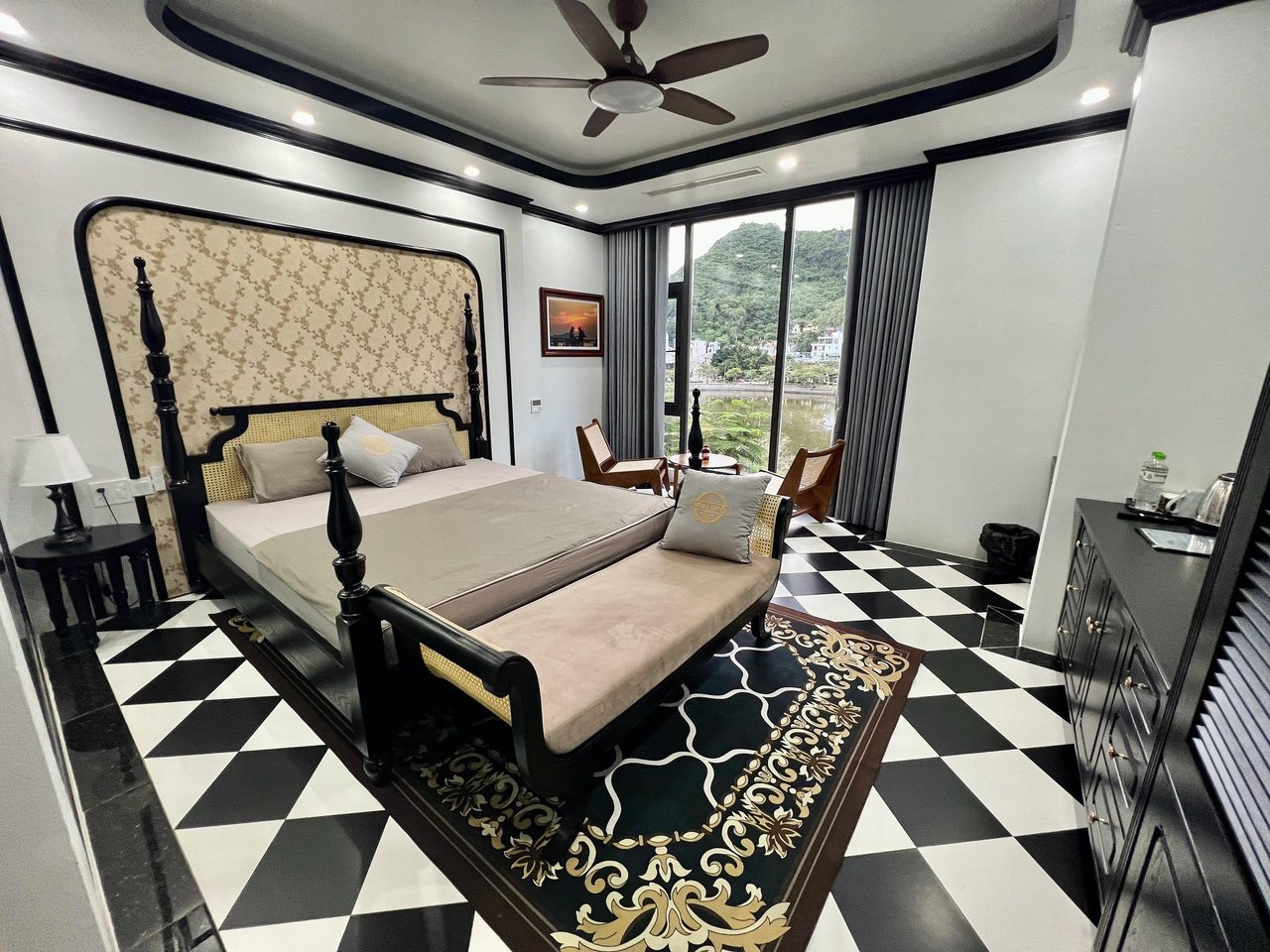
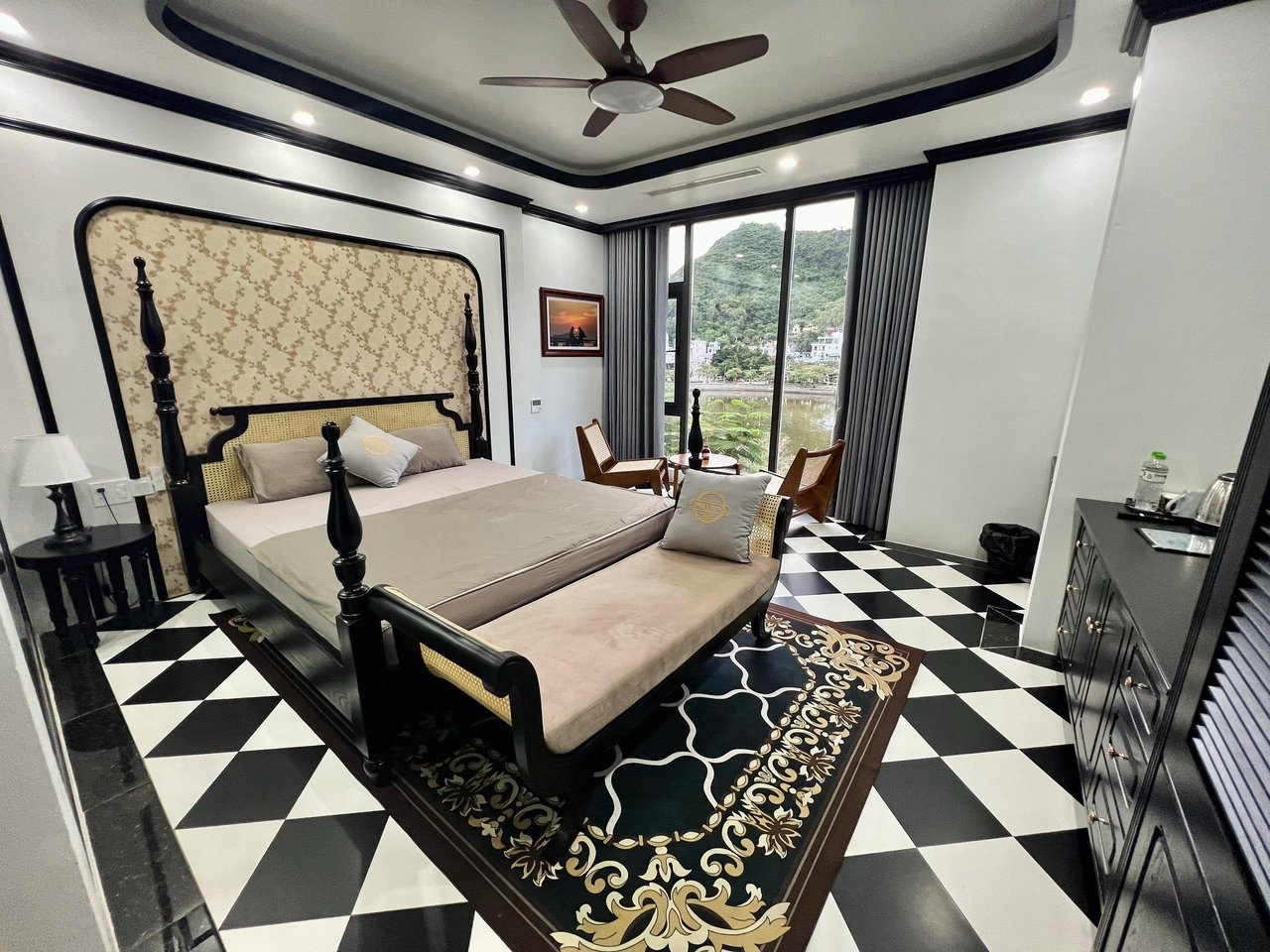
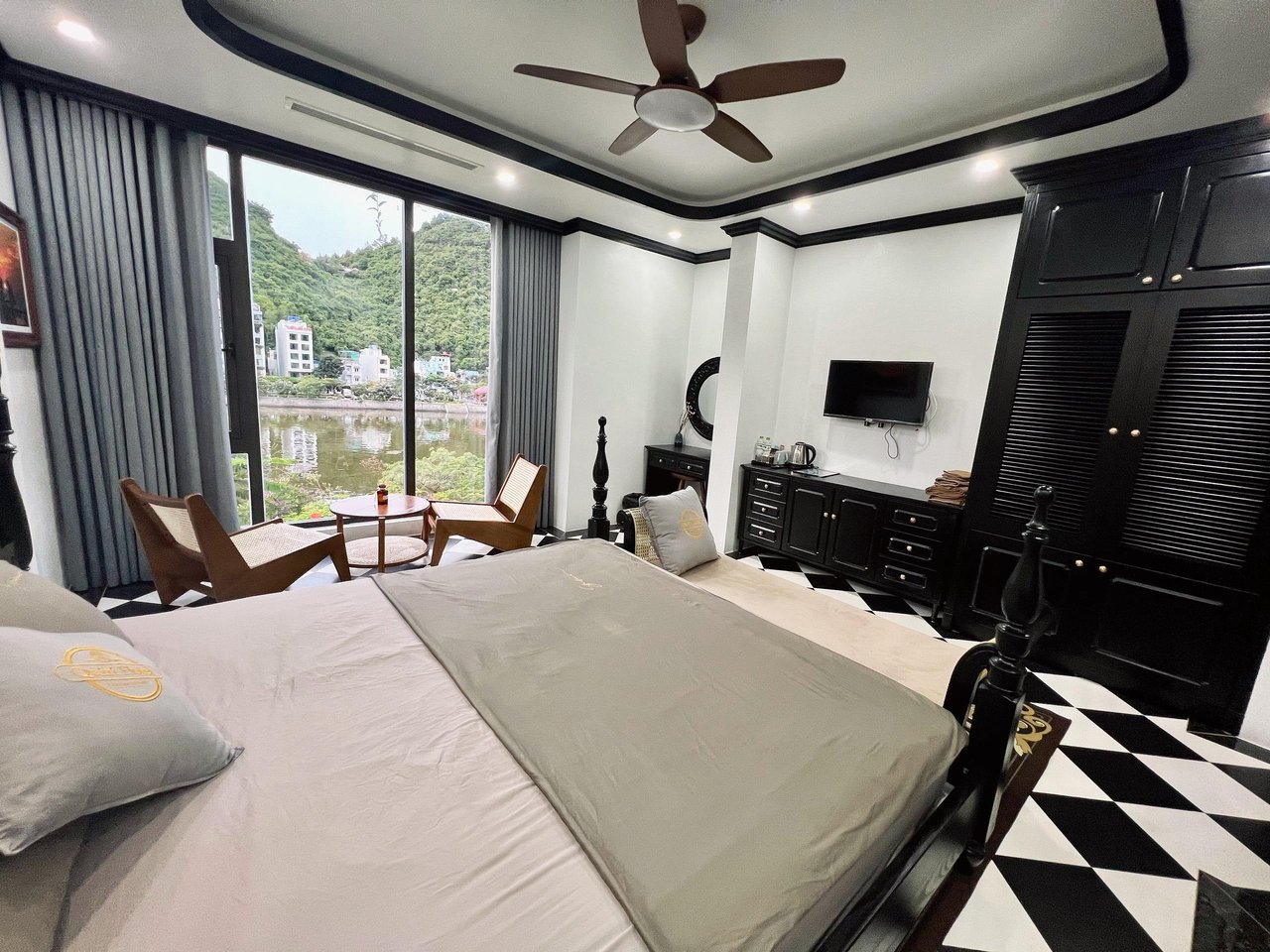
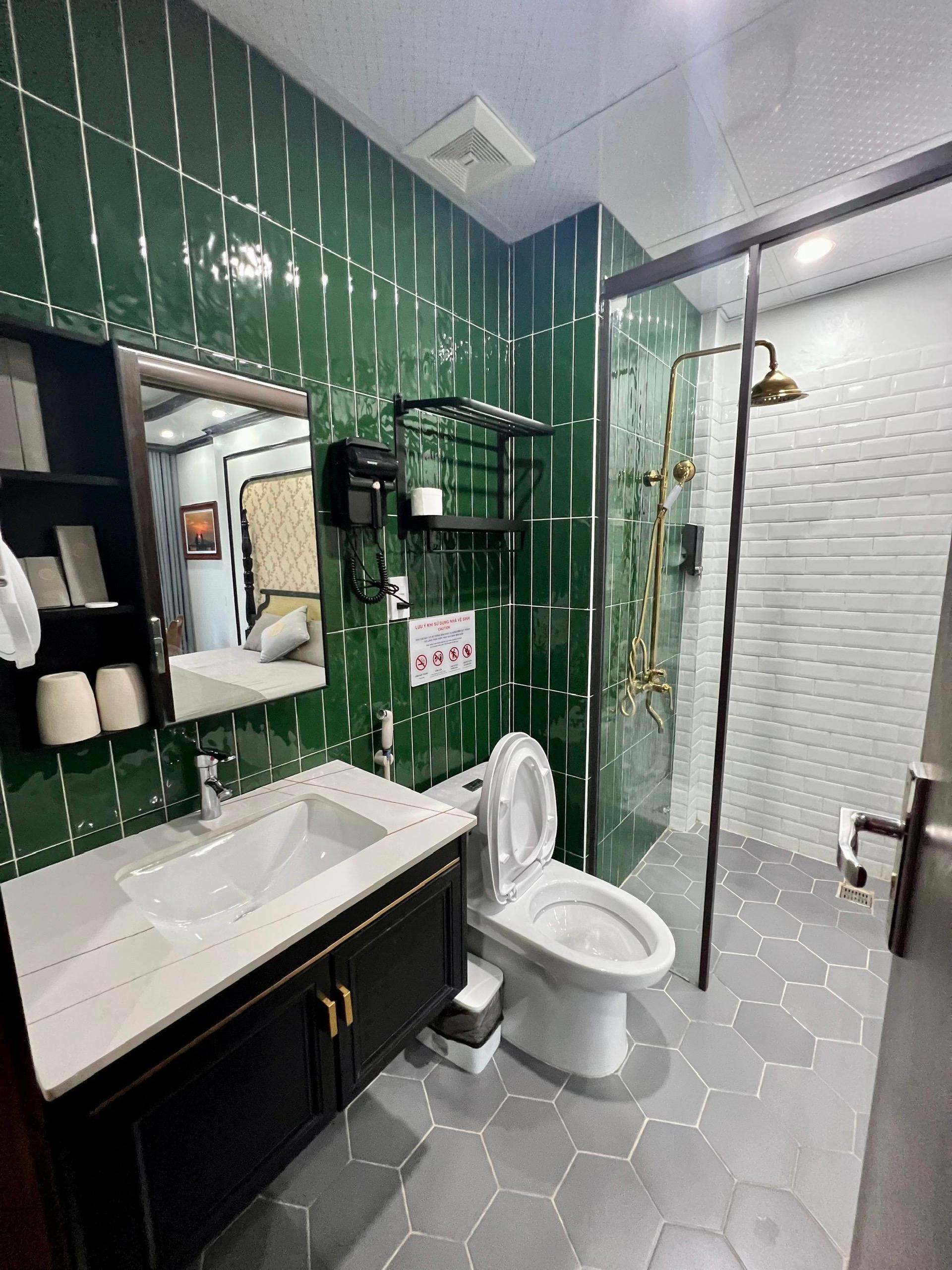

Day : 23/02/2025 - 24/02/2025
Room name : Indochine Room
Kind of room : Modern Room
Total amount : Contact
Discount % member 63Stravel Vip
Final price to pay : Contact
Room amenities
 Air conditioner
Air conditioner
 Towel
Towel
 No smoking
No smoking
 Free toiletries
Free toiletries
 Slipper
Slipper
 Hot water tank
Hot water tank
 Free wifi
Free wifi
 Shower head
Shower head
 Free mineral water
Free mineral water
 Hairdryer
Hairdryer
Room description : * Room for: 2 people - 1 double bed * Maximum capacity of the room: 3 people * Standard number of guests: 2 people * Allowing 1 additional child to accommodate a maximum of 3 guests may incur an additional fee * City View, Lake View
Check-in time : After 12 o'clock
Check-out time : Before 11:30 a.m
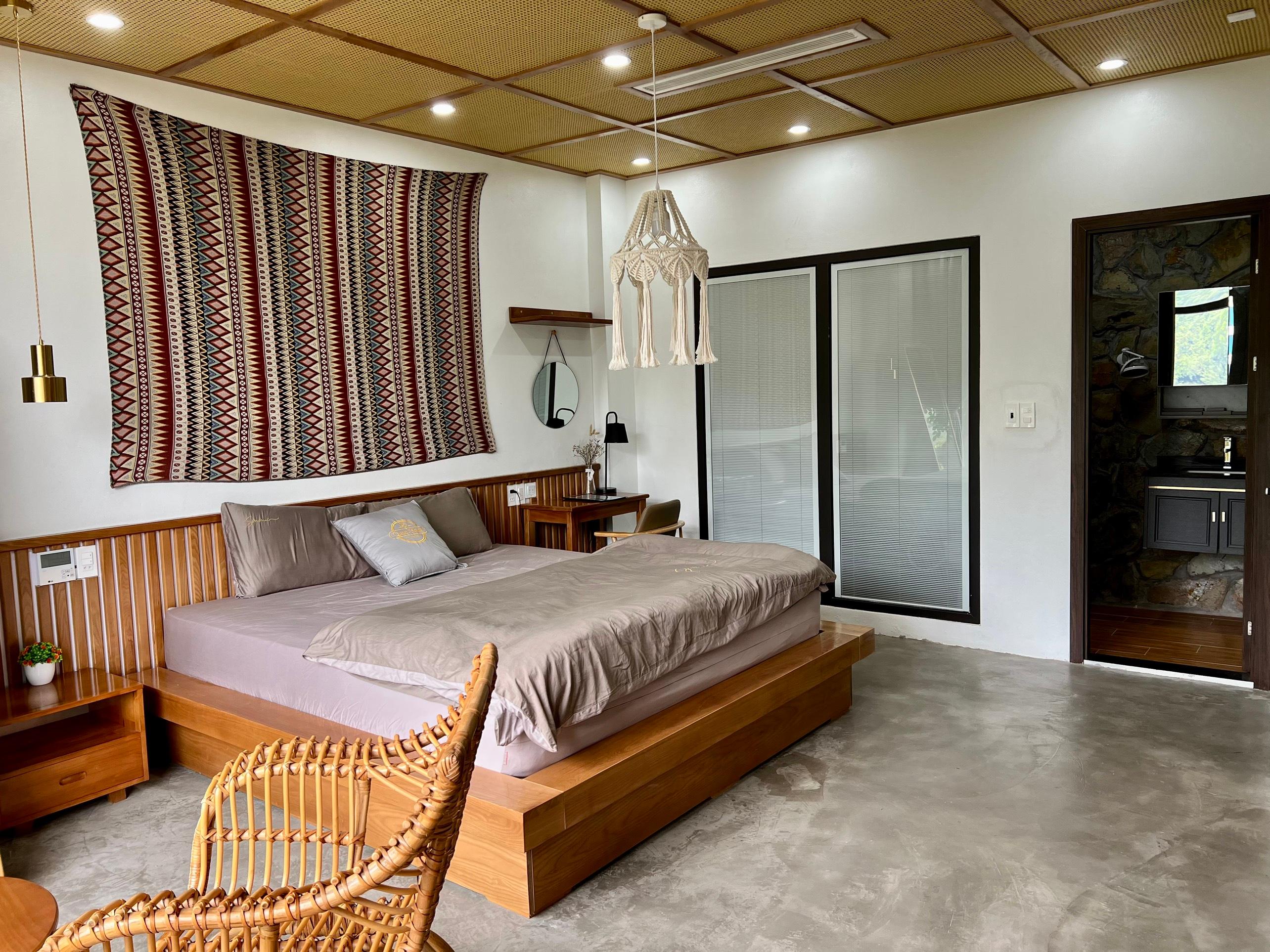
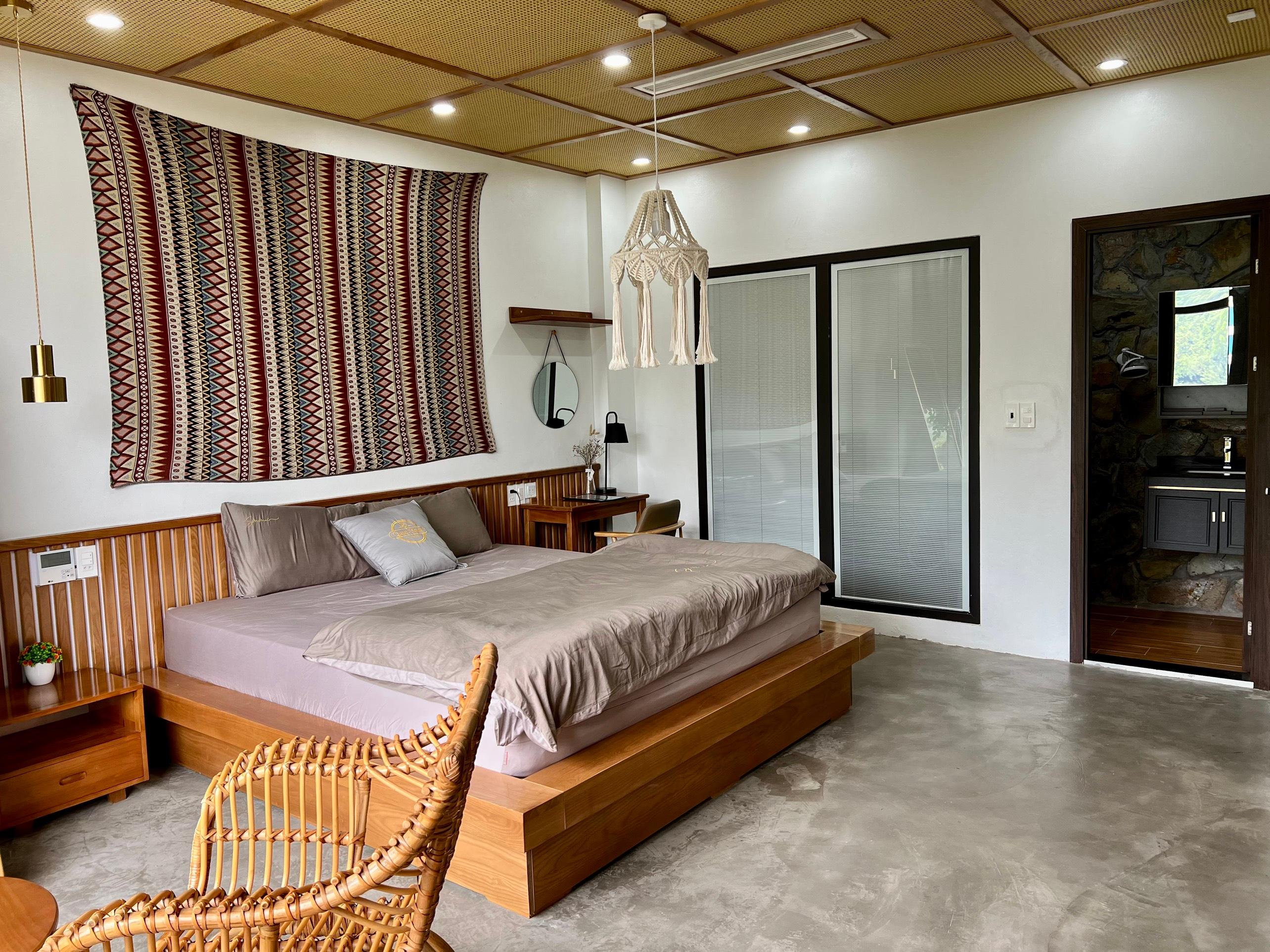
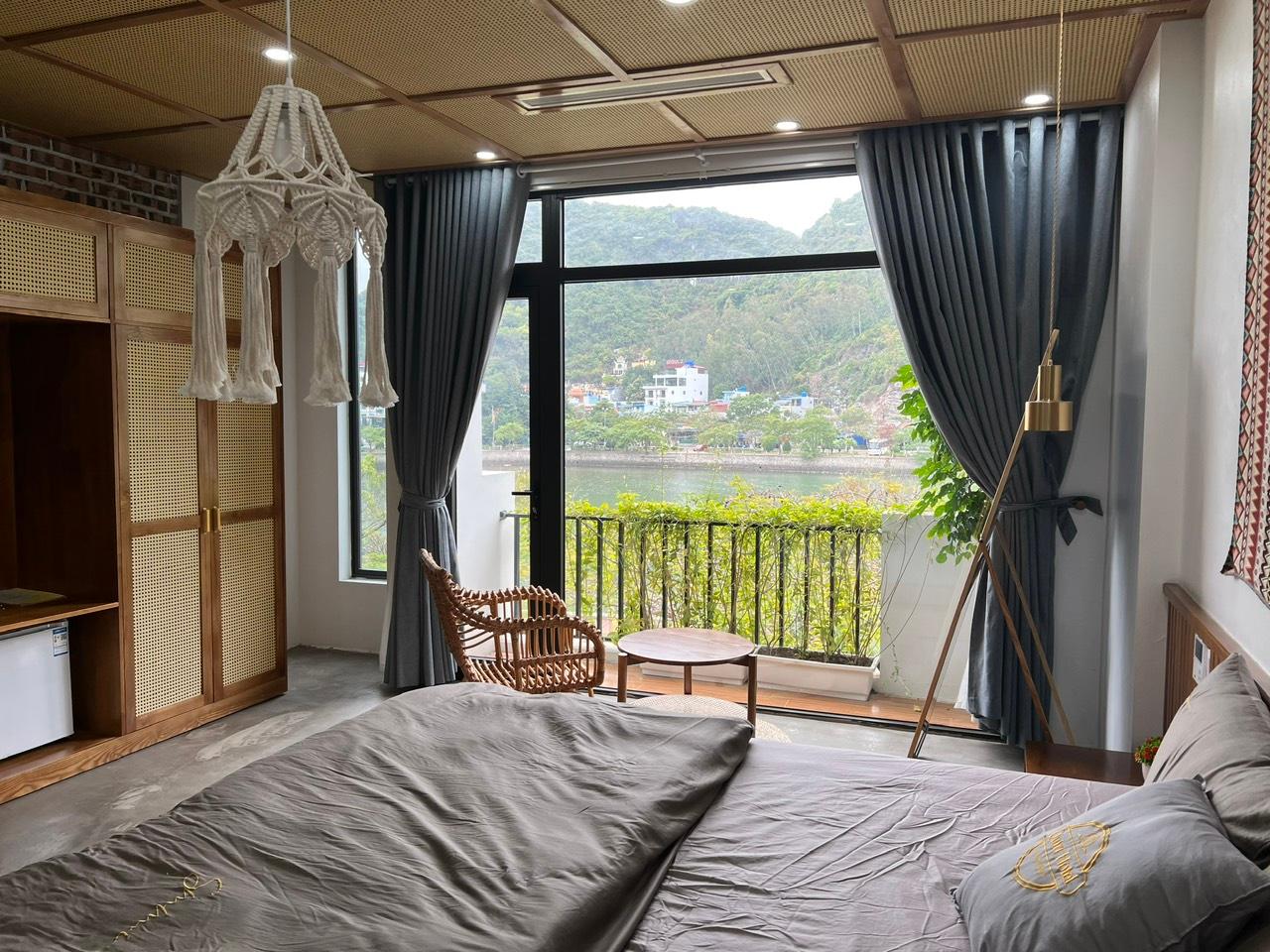
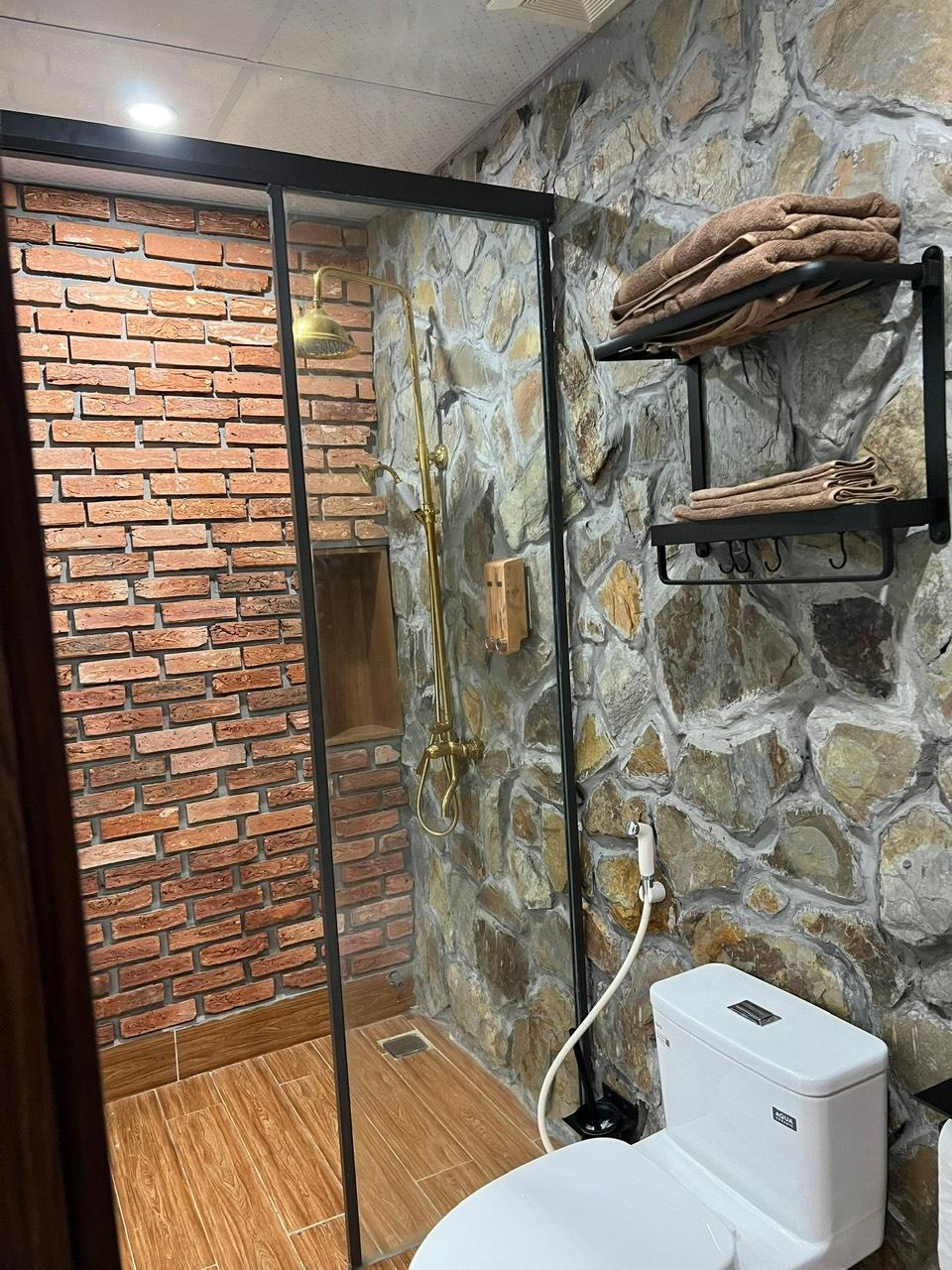

Day : 23/02/2025 - 24/02/2025
Room name : Rustic Room
Kind of room : Modern Room
Total amount : Contact
Discount % member 63Stravel Vip
Final price to pay : Contact
Room amenities
 Air conditioner
Air conditioner
 Towel
Towel
 No smoking
No smoking
 Free toiletries
Free toiletries
 Slipper
Slipper
 Hot water tank
Hot water tank
 Free wifi
Free wifi
 Shower head
Shower head
 Free mineral water
Free mineral water
 Hairdryer
Hairdryer
Room description : * Room for: 2 people - 1 double bed * Maximum capacity of the room: 3 people * Standard number of guests: 2 people * Allowing 1 additional child to accommodate a maximum of 3 guests may incur an additional fee
Check-in time : After 12 o'clock
Check-out time : Before 11:30 a.m
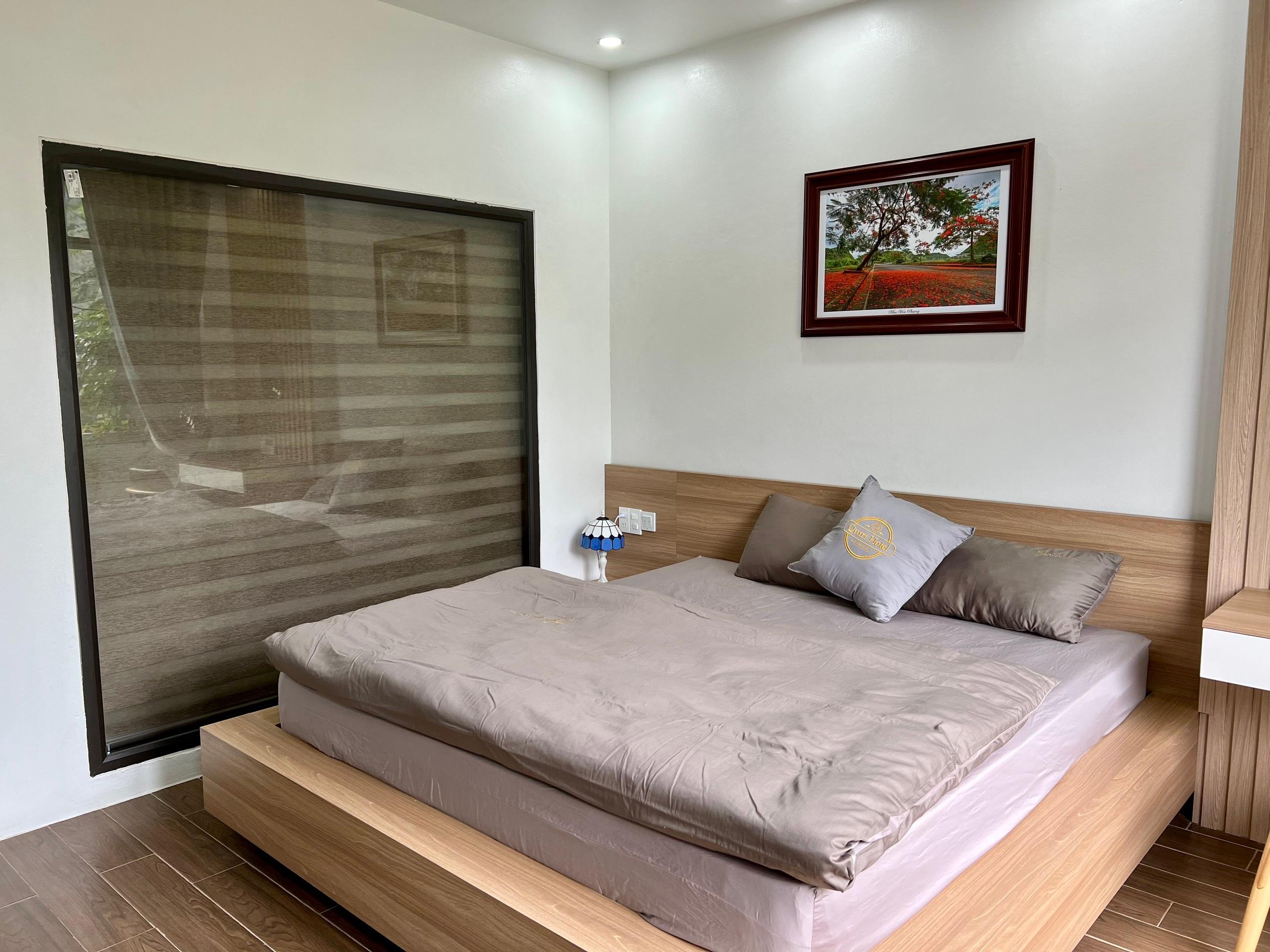
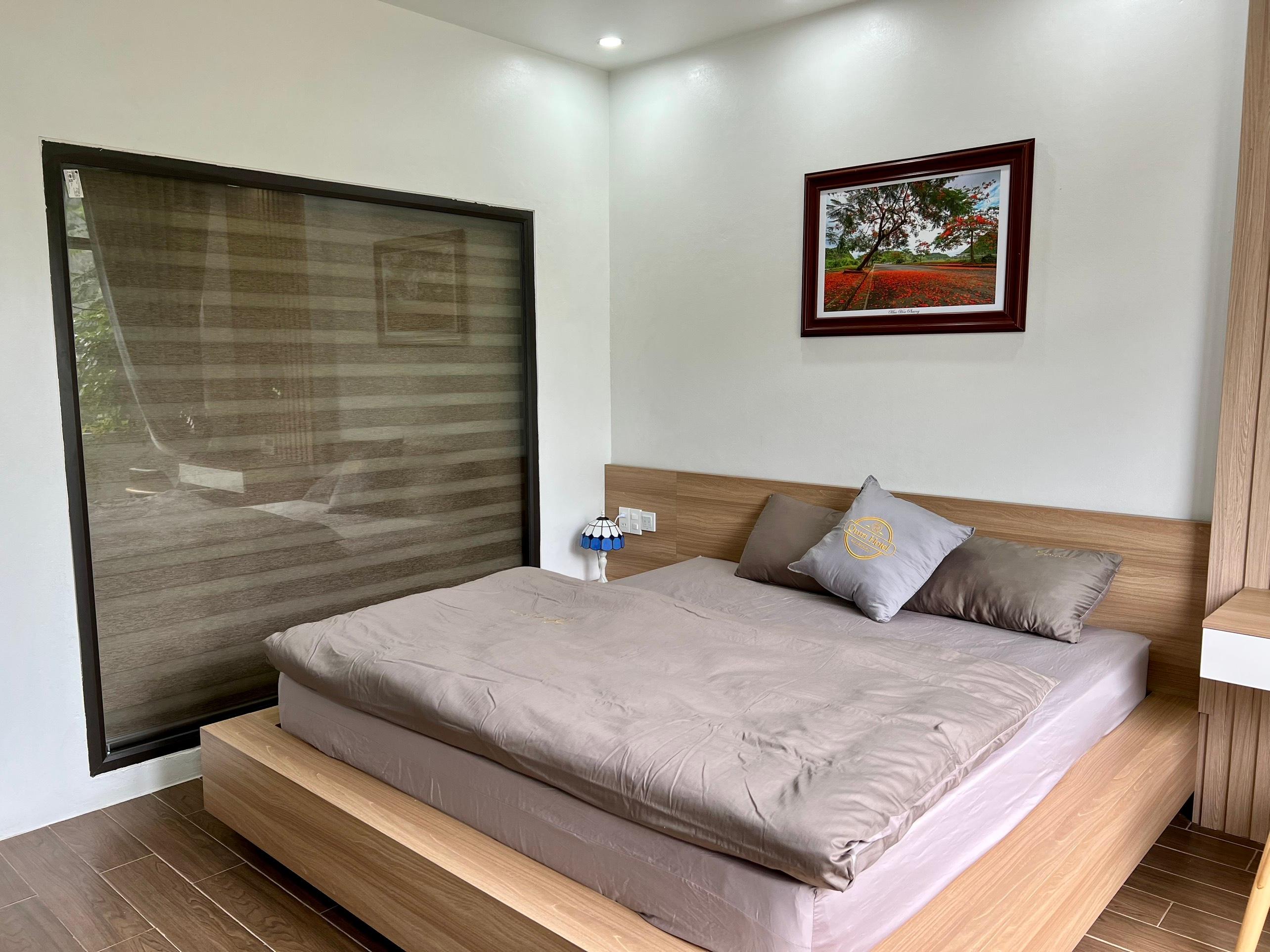
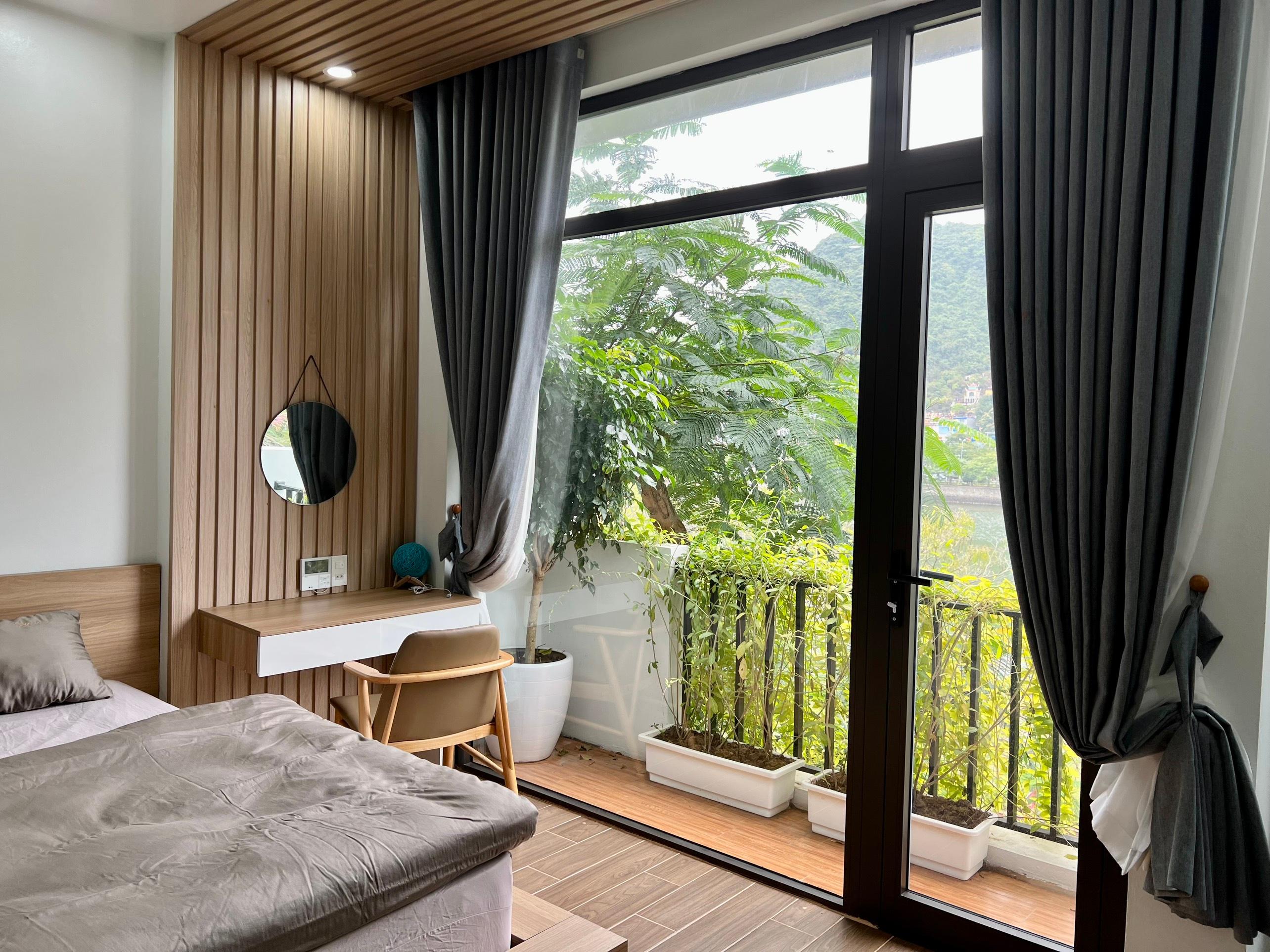
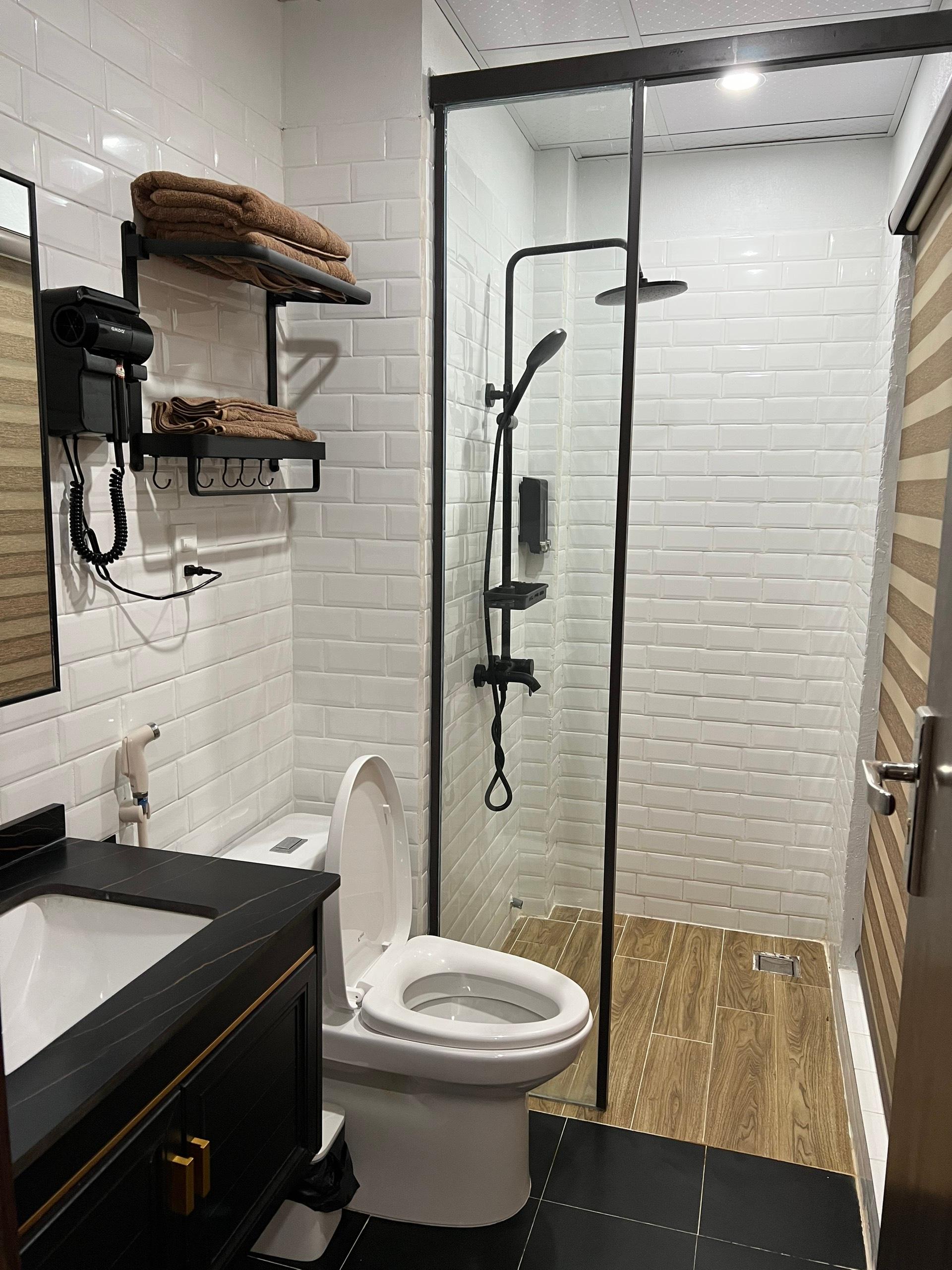

Day : 23/02/2025 - 24/02/2025
Room name : European Room
Kind of room : Modern Room
Total amount : Contact
Discount % member 63Stravel Vip
Final price to pay : Contact
Room amenities
 Air conditioner
Air conditioner
 Towel
Towel
 No smoking
No smoking
 Free toiletries
Free toiletries
 Slipper
Slipper
 Hot water tank
Hot water tank
 Free wifi
Free wifi
 Shower head
Shower head
 Free mineral water
Free mineral water
 Hairdryer
Hairdryer
Room description : * Room for: 2 people * Maximum capacity of the room: 3 people * Standard number of guests: 2 people * Allowing 1 additional child to accommodate a maximum of 3 guests may incur an additional fee
Check-in time : After 12 o'clock
Check-out time : Before 11:30 a.m
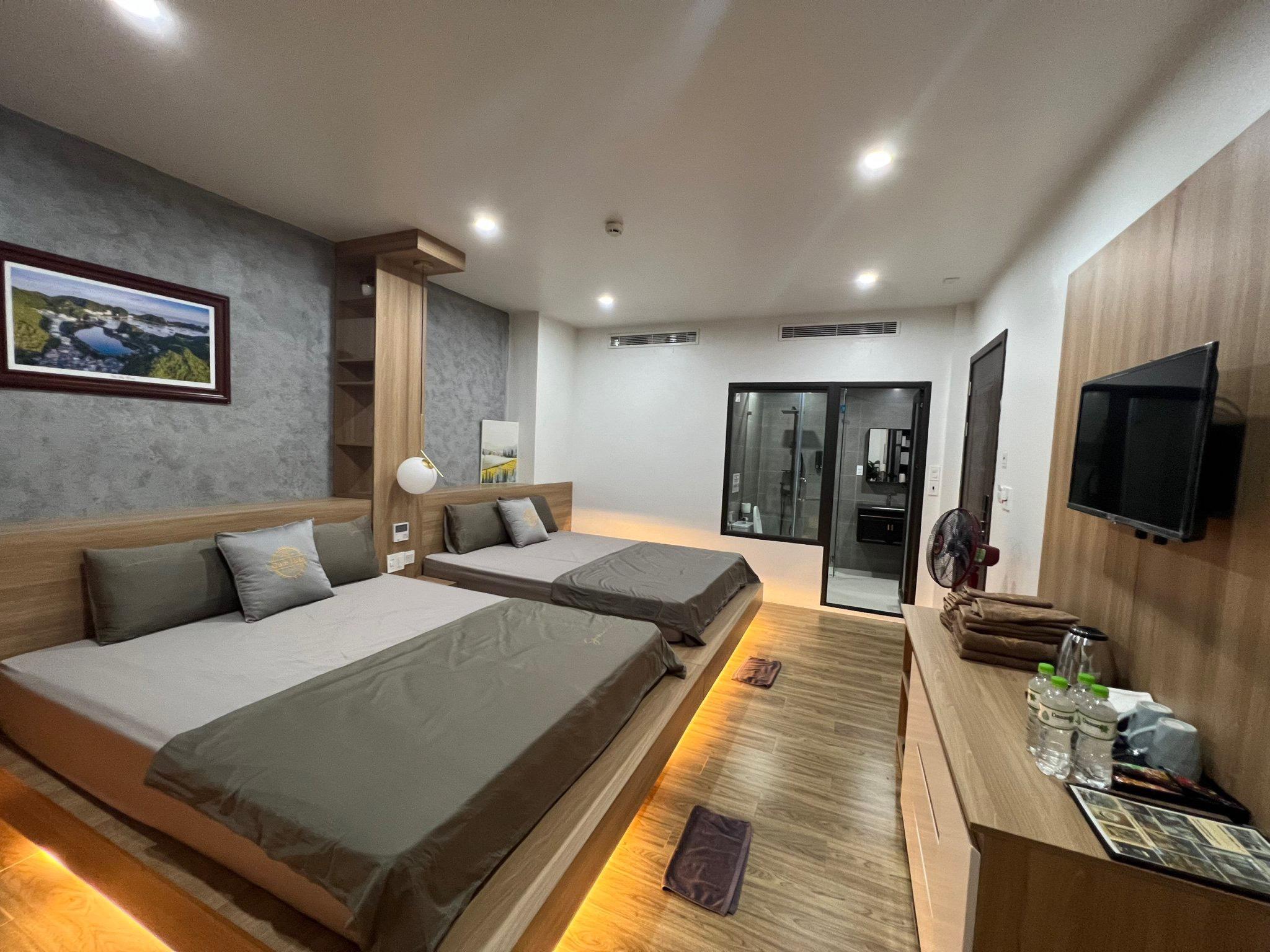
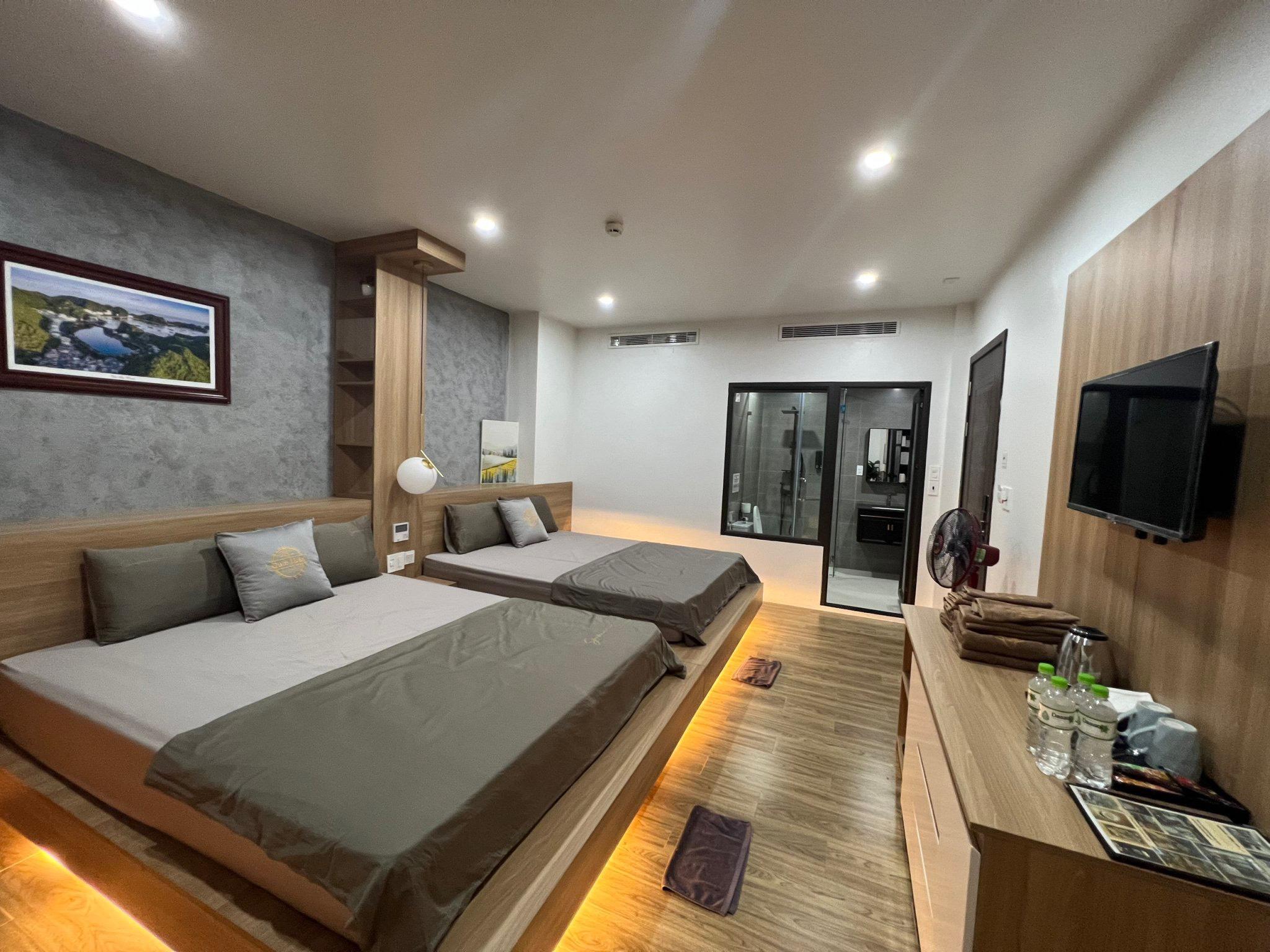
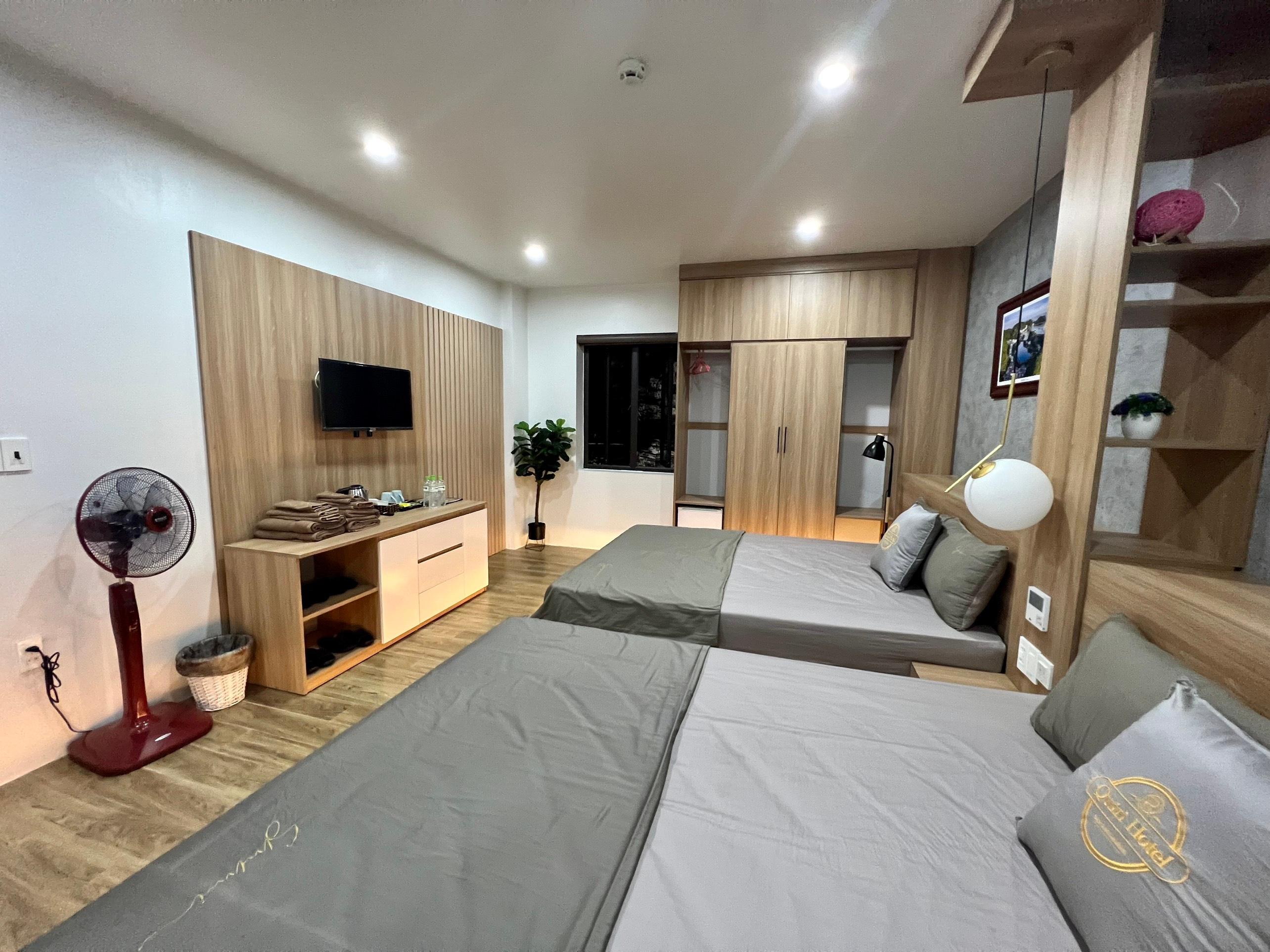
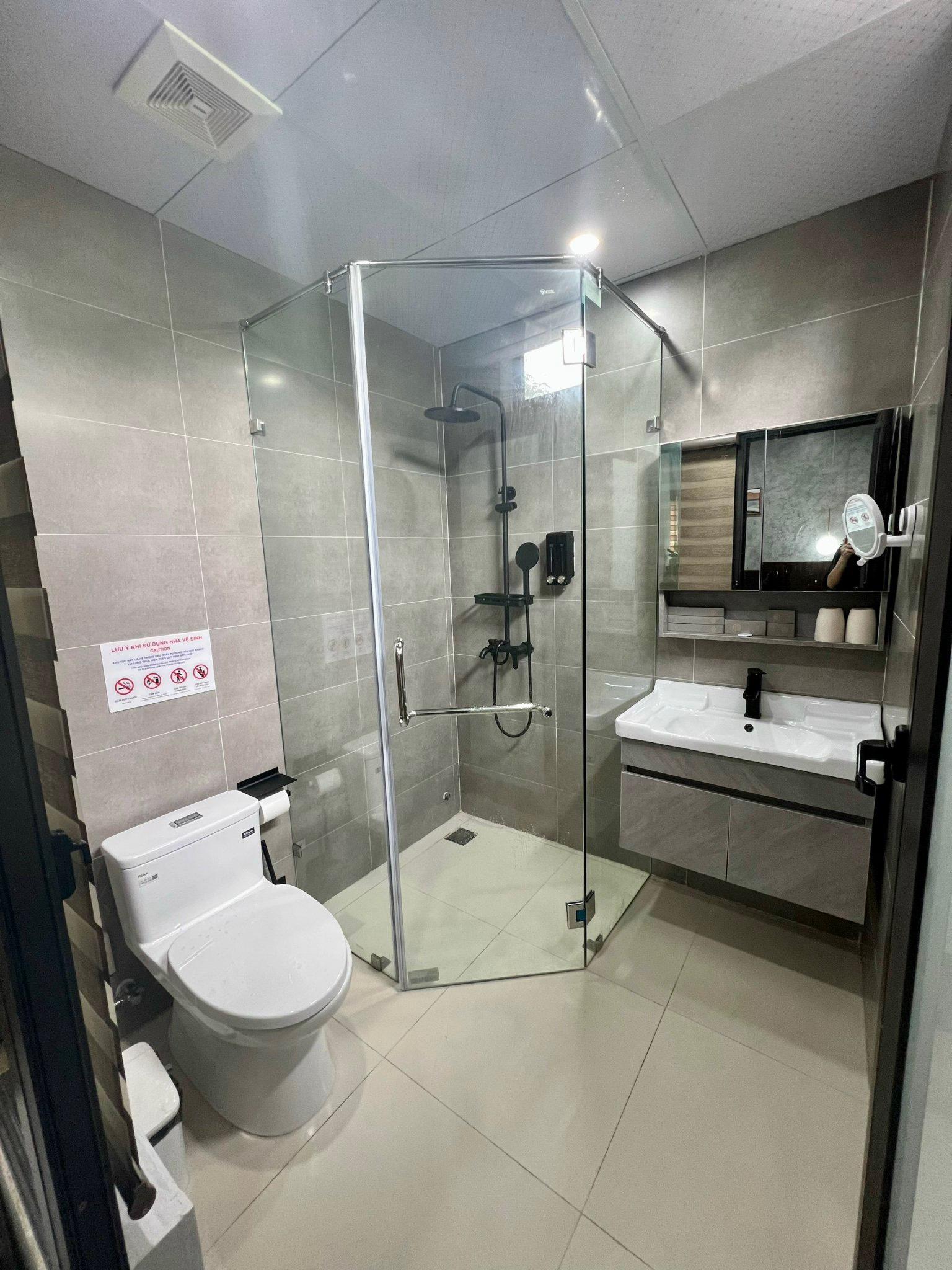

Day : 23/02/2025 - 24/02/2025
Room name : Modern Room
Kind of room : Modern Room
Total amount : Contact
Discount % member 63Stravel Vip
Final price to pay : Contact
Room amenities
 Air conditioner
Air conditioner
 Towel
Towel
 No smoking
No smoking
 Free toiletries
Free toiletries
 Slipper
Slipper
 Hot water tank
Hot water tank
 Free wifi
Free wifi
 Shower head
Shower head
 Free mineral water
Free mineral water
 Hairdryer
Hairdryer
Room description : * Room for: 4 people - 2 double beds * Maximum capacity of the room: 6 people * Standard number of guests: 4 people * Allowing 2 additional children to accommodate a maximum of 6 guests may incur an additional fee
Check-in time : After 12 o'clock
Check-out time : Before 11:30 a.m
( Discount % member 63Stravel Vip )
 Parking
Parking
 Receptionist
Receptionist
 Alarm
Alarm
 Selling tours
Selling tours
 Special help
Special help
 Keep your luggage
Keep your luggage
 Free internet
Free internet
 Daily cleaning
Daily cleaning
 Steam laundry
Steam laundry
 Laundry Service
Laundry Service
 Iron
Iron
 Dinner
Dinner
 Lunch
Lunch
 Breakfast
Breakfast
 Restaurant
Restaurant
 Alcohol
Alcohol
 No smoking
No smoking
 Air conditioner
Air conditioner
( Discount % member 63Stravel Vip )
( Discount % member 63Stravel Vip )
